Contents
Now though we’ve had time to think harder about how our businesses work and many pubs are bringing in money-saving equipment and software to help boost the bottom line.
In the middle of the coronavirus pandemic pubs had to switch their businesses into more tech-focused operations for various reasons, but the main driver was the need for booking and payment systems.
Countless apps rose from the nowhere and were taken up by desperate operators who needed solutions to problems they’d never encountered before – mainly ordering and paying from tables but also the need for more intelligent booking software.
Pub tech in numbers
- 48% of business leaders suggest that implementing new technology has been a major focus or their biggest focus post-lockdown to help safely reopen their businesses (CGA and Fourth)
- One in three business leaders state that technology will be fundamental in helping them successfully navigate the current marketplace (CGA and Fourth)
- Two-in-five (40%) people agree that technology has improved their hospitality experiences (Zonal)
- 40% of customers feel safer in venues that use order and pay technology (Zonal and CGA)
- 44% of Brits agreed that they have found it frustrating that apps and QR codes at hospitality venues do not show the entire menu (Ubamarket)
- 32% agreed that since returning to hospitality venues amid the easing of pandemic restrictions that they have found ordering from QR codes in pubs/bars/ restaurants too unreliable (Ubamarket)

- On-trade visitors rated the top benefits of pub technology as speed and convenience (31% of people rated this as their top benefit), ease of ordering (29%) and tracking orders (17%) (Zonal)
- 60% of Brits agreed that their biggest concern regarding to returning to indoor hospitality is having to be in a crowded queue for the bar (Ubamarket)
- More than half of consumers (51%) prefer to be welcomed in person when they arrive (Zonal)
- When it comes to ordering, the top three guest frustrations are: struggling to get the server’s attention (30%); items they want not being available (22%) and being rushed to place their order (18%) – all of which can be solved through the adoption of technology (Zonal)
- Integrating front and back-of-house technology can address frustrations such as waiting too long for food (24% of people said waiting too long was the most frustrating aspect of eating out) (Zonal)
- 17% of Brits found that while dining, they were put off ordering particular meals because the digital menu did not state all the ingredients in the dish (Ubamarket)
- 43% of Brits have said that when headed back to indoor dining, they do not want to wait more than five minutes for their server to take their order (Ubamarket)
- Some 18% of customers think that being able to pay immediately, and the same number stating that being able to pay via a wide choice of options, are the most important aspects of settling bills (Zonal)
- Just 15% of business leaders rate themselves as market leading when it comes to technology innovation (CGA and Fourth)
Image: Henrik Sorensen/Getty Images
New horizon of tech
Such a move by operators has also revealed a new horizon of technology, which offers countless opportunities for them and their businesses to help make things run more smoothly, efficiently and most importantly with more profit.
In The Morning Advertiser’s Pub of the Future webpage, filled with exclusive content about technology for the sector, we have explored all kinds of tech for pubs.
But it doesn’t stop there, we’ll be updating this page regularly to ensure pub operators can stay on top of the latest tech trends, software and other gadgets in the sector to help their businesses run as smoothly as possible.
It’s easy to navigate the page; use the contents section on the right of this page by clicking on the section you’re interested in to easily get to the information you want. When you’re done, click on the ‘back to top’ tab beneath each section and you’ll be brought right back to the beginning.
Food Hygiene
How can technology help pubs step up their allergen game before Natasha’s Law comes into force this autumn?
New Natasha’s Law legislation, which comes into force in October, establishes new roles and responsibilities for businesses to adhere to when it comes to allergens.
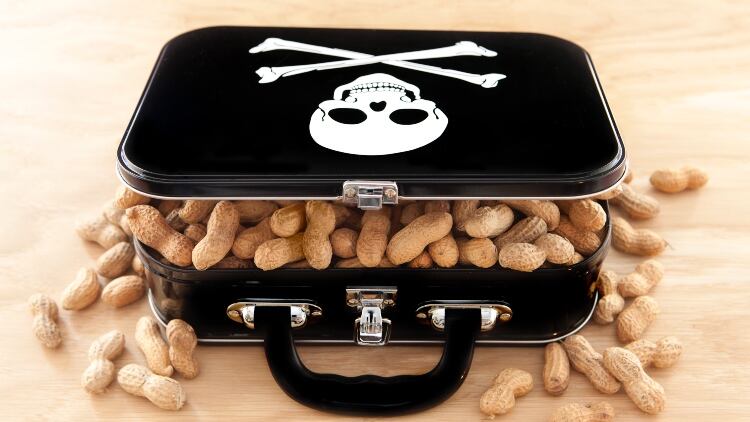
(Image: Tooga/Getty Images)
According to Food Alert technical director Julia Wilson, Natasha’s Law – which will make it a legal requirement for all food retailers and operators to display full ingredient and allergen labelling information on every food item they sell 'pre-packed for direct sale' – is a very important piece of legislation but poses “another layer of compliance for an already burdened sector”.
“However, getting it right is essential as it could be the difference between life and death,” she tells The MA.
“This is where technology really plays a part and even though consumer facing apps, such as order and pay, have a role to play, it’s back of house food safety apps, that make tracking allergens easier – reducing the risk of human error – and less time consuming.
“Cloud-based software solutions allow publicans to automate manual tasks and digitally log and manage which of the 14 prescribed allergens are present within each menu item or product, so their business stays compliant and exposure risk is minimised.
“Using such an app also means any allergen or nutritional information changes can be done remotely, from anywhere for an entire estate or on a pub-by-pub basis.”
New tech ‘well placed’
Ben Gardner, CEO of Navitas, adds that having a digital allergen management and tracking system is going to be essential for pubs and restaurants moving forwards.
“This will ensure that businesses can always prove that they have clearly labelled all allergens within the food they produce for direct sale, even for traditional bar snacks and baked goods like pies and sausage rolls,” he explains.
“If businesses fail to do so, they will be putting themselves at risk. A digitalised system, which maintains a record of all allergen labels printed, will guarantee that pubs are entirely protected.
And, with Natasha’s Law coming into force as of October this year, it is more apparent and important than ever before.”
Mark Flanagan, CEO at Shield Safety Group concurs that tech can support operator adherence to Natasha’s Law as well as the management of other food safety issues where a business needs to communicate the right information to the customer.
“The booking apps, digital menus and customer registration tech that have become part of most operations over the last year are well placed to serve this purpose as we move into a future way of working,” he adds.
‘Part of the solution but not the only solution’
However, Flanagan says that one caveat when introducing tech to a pub business to help support health and safety requirements is that it must work for all customers and not be a barrier to using a service.
“Key to this is having a firm understanding of the guest profile and being aware of the potential for exclusion of certain groups of people,” he explains.
“There have been instances where businesses have communicated allergy information but due to the way it was presented the end user couldn’t understand it. This has then ended up in court, with the judge finding that the business had failed to sufficiently communicate the presence of allergens to the guest.
“This highlights the crucial need for tech to be part of the solution but not the only solution. User testing, team training and verification of guest understanding must be applied to ensure guest understanding before any interface is rolled out en masse.”
‘Relentless’ pandemic focus shouldn’t distract from broader pub hygiene questions
As the hospitality sector continues to battle through the Covid-19 pandemic, operators must remain focused on broader hygiene and customer safety issues on the horizon.
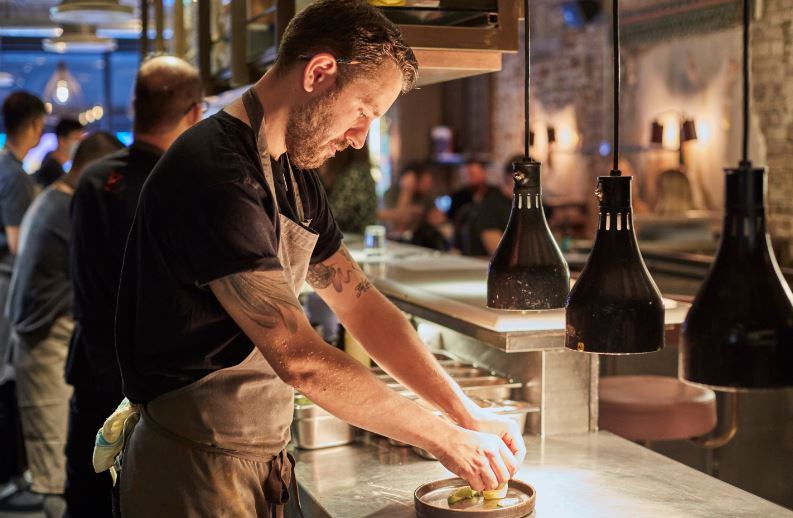
According to research by global intelligence platform Streetbees in August, 85% of pubgoers believe their local has followed Covid-secure guidance – such as maintaining social distancing, collecting customer contact details and providing hand sanitiser where possible – to the letter.
The same research found 13% of respondents believed pubs and bars they’d visited since the easing of lockdown restrictions had adapted to guidance “very well” while a further 31% believed their local had done “well” in shaping their business for the new normal.
However, entering the new year in the throes of the pandemic and facing a degree of uncertainty over Brexit, among other things, is a reminder that operators must continue to focus on maintaining a squeaky clean, and all-encompassing, view of site hygiene.
“Entering 2021, the landscape is still uncertain, but there are reasons to be optimistic as the UK steps up its vaccine programme,” Food Alert’s technical director, Julia Wilson says. “This time we are armed with key learnings from the events of the last 12 months and better understand how to defend against an external threat of unprecedented scale.
“Hygiene and safety protocols, while always a critical part of an operator’s business, have been taken to a whole new level,” she continues. “This is a good thing, with customers and employees needing visible reassurance that a venue is doing everything it can to maintain the highest levels of cleanliness.
“From regular cleaning of toilet facilities to swift clearance of tables after customers have left are all good practice, with or without Covid-19.
‘Virtual’ hygiene protocols
However, Wilson warns the “relentless” focus on the pandemic could mean that operators miss new legislation due to come into force in 2021, such as Natasha’s Law.
“As of October this year, any business in England must clearly label all foods packed and produced on their premises with a complete list of ingredients,” she says. “With the rise in at-home kits (make-aways) and take-away services this alone is going to have a huge impact on pubs and restaurants."
Wilson continues: "But even before it becomes cemented in law, allergen management is critical. Mismanagement can have unintentional tragic consequences, such as loss of life from anaphylactic shock.
“With venues now operating largely virtually, with no or minimal face to face contact with customers, it’s even more essential that the strictest protocols are in place,” Wilson continues.
“Does your online ordering clearly signpost the allergens in your dishes, is it clear who customers can contact to find out more and are your teams adequately trained? Do you carefully package and label the allergen prepared meal, so customers know which is which?”
Potentially ‘overwhelming’
Wilson adds that this is also where Brexit could potentially rear its head, with product sourcing a real issue for many suppliers.
“Do you have procedures in place whereby you are automatically notified of any ingredient changes, even to regular, day to day products such as tomato sauce?
“And if that’s not enough, the Government is pushing ahead with plans to force pubs, restaurants, cafes and takeaways with more than 250 employees to add calorie labels to menus,” she continues.
“Covid-19 rather than dampening the Government’s appetite for introducing the new legislation for hard hit hospitality, has in fact galvanised its desire to reduce obesity in England. Research has shown that being overweight puts people at greater risk of serious illness or even death from the virus.”
While she acknowledges that the hygiene landscape can seem “overwhelming”, Wilson adds that compliance can be made easy with the right support in place.
“Having that 24/7 expert consultancy to guide you every step of the way is invaluable – from adopting robust cloud-based safety management software, Alert65 to audits, Hazard Analysis Critical Control Points (HACCP) development, incident management, employee training and food sampling, labelling and nutritional analysis services.”
Sustainability
Technology has a ‘vital role to play’ in reaching on-trade sustainability targets
Carlsberg Marston’s Brewing Company’s (CMBC) sustainability manager discusses the role technology has, and can play, in addressing green issues within the on-trade.

Q – How big is the challenge facing the on-trade when it comes to sustainability?
A – Many venues have already taken significant steps – both pre-pandemic and through the recovery – to reduce their immediate environmental impact. This could be tackling food waste, installing more efficient lighting and refrigeration, or even better beer dispense technology that cuts waste and water use.
However, these changes, while significant when done on scale, account for only a small portion of the total impact of pubs and restaurants. They can make a far greater impact through the food and drinks that they source, and by collaborating with the wider industry and entire supply chain to strive for positive environmental changes.
The on-trade also has a huge opportunity to engage pub-goers in the sustainability credentials of what they’re consuming. We’ve seen this happen with food, as the provenance and the way it’s grown becomes more important. Now it’s the turn of drinks.
Q – Are there any key stats or data that, for you, demonstrate the size of the environmental challenge facing the on-trade and beer businesses in the UK?
A – Every business and sector face significant challenges in improving their environmental footprint and many businesses face the same challenge as we do – that the majority of their impact lies beyond their direct control.
At Carlsberg Marston’s Brewing Company, we have ambitious science-based targets to eliminate carbon emissions from our breweries by 2030. However, this only accounts for around 12% of our value chain carbon footprint. That’s why our targets extend to our total beer-in-hand footprint – aiming to cut emissions by 30% between 2015 and 2030.
The challenge is that this relies on forming partnerships and collaborating across the supply chain, with our partners, suppliers and customers. We must work together to identify and create solutions and our suppliers rely on us to engage with consumers and customers and build the demand.
Q – Have there been any watershed moments for you when it comes to realising the importance of sustainable business practices at CMBC?
A – One of the watershed moments for me was the introduction of snap pack, our solution to replace plastic rings using an innovative glue technology. For the first time ever, we made sustainability a talking point of the brand and a clear differentiator on shelf. This led to more customers and more conversations about sustainability. The most exciting thing was how it triggered others to do the same – removing plastic rings and finding more sustainable solutions for their packaging.
This was the beginning of a journey for our flagship Carlsberg brand – to put sustainability at the core of its proposition. Building on this, we recently launched a partnership with WWF, bringing that sustainability message directly to consumers and giving them the chance to get involved by purchasing a beer. For the first time ever, we’ll be communicating around sustainability on the pump at on-trade outlets, and for each pint of Carlsberg Danish Pilsner in participating outlets, a donation will be made to our work with WWF to restore the small but powerful plant, seagrass, along the UK coastline.
Q – What role has technology played in accelerating CMBC’s drive towards net zero and greater sustainability?
A – Technology has a vital role to play in reaching the sustainability targets in our Together Towards Zero programme.
In the Carlsberg Research Laboratory, we have a team of postdoc scientists who are tasked with identifying these technologies and innovations to meet our ambitions of zero carbon footprint and zero water waste – from digital models of our breweries to creating energy from spent grain.
At the Fredericia brewery in Denmark we have just opened a total water recycling plant that will reuse 90% of process water cutting water use from 2.9 hl/hl to just 1.4 hl/hl.
However, all of this relies on the dedication and expertise of our people – constantly looking for better ways of working – and on the commitment of our leadership to building and investing in a more sustainable business for the future.
Q – Are there any key technological advances that you think have helped CMBC’s sustainability efforts specifically?
A – There are quite a few. For example, in partnership with the glass bottle supplier, Encirc, we cut the carbon impact of our iconic green Carlsberg Danish Pilsner bottles by up to 90% using 100% recycled content and powering the furnace on biofuel. This has huge potential – taking the glass bottle from our highest carbon packaging format to our lowest.
And it’s just one example of what we can achieve by partnering across the value chain.
In the breweries, technology will be vital to get us to zero emissions and zero water waste. But we have also seen incredible efficiency improvements that are solely down to the expertise of our teams to adapt and improve processes. For example, by adjusting the temperatures of the pasteuriser we saved nearly 12m litres of water in one year alone.
Q – What simple changes do you think can help pubs become more sustainable?
A – Refrigeration in outlets accounts for around 10% of our total carbon footprint at CMBC. One simple change is to purchase renewable electricity and improve the energy efficiency of the equipment used. That’s a change that’s not just good for the planet – it will also save running costs in the long-term.
On the topic of efficiency, the dispense system can also be improved. At CMBC, we have the Carlsberg Quality Dispense System (CQDS) which ensures great quality beer, but also saves on average 6,000 litres of water a year per outlet by reducing the need for cleaning. This is an example of a system that can really help pubs become more sustainable in ways that are in their direct control.
The targets in our Together Towards Zero programme go beyond environmental impact to consider our broader responsibilities to society, including the ambition for zero irresponsible drinking. This includes increasing the information and choices available to consumers, especially when it comes to alcohol-free beers. By promoting the availability of alcohol-free beers at the bar, publicans can contribute to promoting ZERO irresponsible drinking too.
Q – What encouraging signs have you seen, either from consumers or the industry, that sustainability is a key priority and that net zero targets can be hit?
A – We’re seeing encouraging signs on all fronts.
We know consumers want to buy from brands they trust, and that act sustainability. Our customers are engaging more than ever in the topic and our investors are also demanding greater disclosure on key environmental and social issues.
At a macro level, we see the growing commitments and action from governments in the leadup to the UN climate change conference later this year.
Across the industry, we see sustainability becoming an increasing area of competition and differentiation, driving progress and more ambitious targets.
At CMBC, we are committed to our science-based targets and continue to strive to speed up progress and increase transparency on the way towards zero.
Q – Are there any other industries that you feel the on-trade, or pub businesses, can look to for inspiration when it comes to ‘green’ goals?
A – I think that you can look at any industry at the moment and find inspiration when it comes to sustainability.
However, the FMCG sector can be applauded for looking to implement changes across the supply chain and their efforts to collaborate with both their partners and also their competitors.
We will only meet our ambitious targets and tackle the climate crisis by working together and learning from one another.
This is where competition to be the best will help us move faster, adopt better practices and change the industry.
Look to your colleagues in the industry to spark inspiration, share ideas, and change the way you work. And of course, engage your suppliers."
Further reading:
- Green shoots: how can the on-trade be more environmentally friendly? - With COP26 on the horizon and sustainability on the nation’s lips, The Morning Advertiser measures up some of the steps being taken by the on-trade to cut its carbon footprint, and how it can help bounce back from Covid in a ‘green’ way.
- Coca-Cola launches Net Zero pub and bar accreditation scheme - Two new initiatives supported by Coca-Cola European Partners (CCEP), Net Zero Now and the Sustainable Restaurant Association (SRA) have been launched across the UK on-trade.
- Carlsberg to make WWF donation per on-trade pint sold - Carlsberg has pledged to offer a donation to the World Wildlife Fund (WWF) for every pint of Carlsberg Pilsner and Carlsberg Export that is served in participating pubs when trading restrictions are lifted.
- Millions of wasted pub pints converted into green energy - Heineken’s Manchester Brewery has converted nearly 7m pints wasted during enforced pandemic pub closures into enough energy to heat nearly 28,000 UK homes for a day.
Front-of-House booking
‘Old school, rigid booking systems are just not cutting it anymore’
While Covid-secure measures such as track and trace have hastened the uptake of reservation systems in the on-trade over the past 12 months – their integration into ever-adapting pubs is far from in the books.
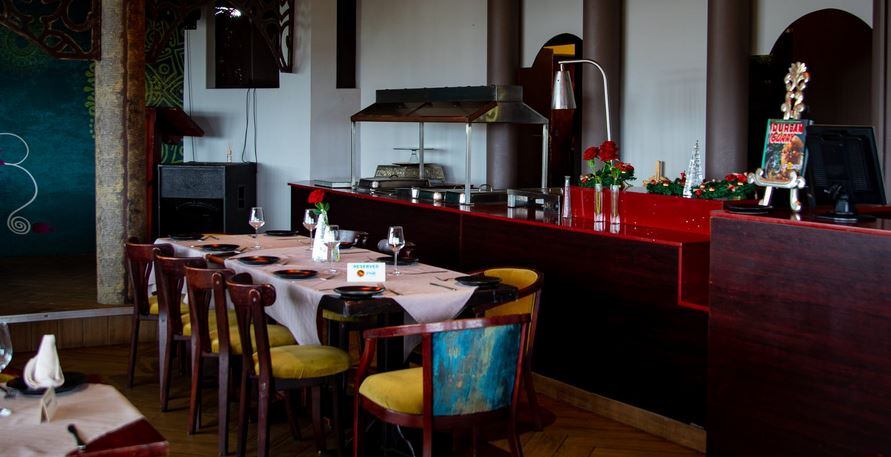
Could the days of blithely wandering into a pub, clocking a table number and sauntering to the bar to place a food order be, well, numbered?
While the ongoing pandemic and track and trace requirements have tasked pub goers and operators alike with being far more meticulous in their evening plans, Lorna Wilcox, business development manager at hospitality reservation and booking system AccessCollins, argues that having flexibility within bookings processes and systems has never been so important.
Yet when it comes to making and taking reservations, arguably the biggest issue faced by operators – not just in pandemic times – is that of no shows.
At a time when businesses are already financially squeezed and more than likely reopen to at limited capacity due to social distancing measures, no shows prevent operators from maximising their already disrupted cover count at a time when every penny matters.
“No shows have always been somewhat of an issue, however as we come out of the pandemic and hospitality can reopen, we need to make sure no-shows are at an all-time low so that venues can recover as quickly as possible,” Wilcox explains.
“Failure to tackle this can lead to some pretty rubbish consequences when considering limited capacity and a lesser likelihood of walk-ins.”
Though 95% of Brits consider it rude not to let a pub, bar or restaurant know they won’t be making a booking, operators nonetheless faced a wave of ‘no-shows’ during the small summer window in which they were able to welcome customers.
According to CGA’s Consumer Pulse survey, roughly one in six people who headed out to pubs, bars and restaurants after lockdown one failed to fulfil a dinner or drinks reservation.
What’s more, the out-of-home leisure expert’s research found one-in-20 (5%) respondents who booked a table since the first national lockdown not only failed to show up but didn’t inform the venue, while a further 5% cancelled plans after making an initial booking.
Rigid systems ‘not cutting it’
Making it easier for customers to cancel is a great start to tackling no shows, according to Wilcox, who highlights one of Collins’ innovations as a prime example of how tech solutions are adapting.
“Collins Bookings, alongside a wealth of other functionality, has a ‘No Show Buster Tool’ that will send customers a reminder text prior to their booking, allowing them to either confirm or cancel in a couple of taps,” she explains.
“If a customer confirms, then fantastic, if they decide to cancel then this booking will be deleted from the system therefore freeing that table for another booking or walk-in. Giving your customer this choice can also boost customer journey and engagement – winner!”
Deposits are also a great way of weeding out time wasters, according to Wilcox, as they deter people from deciding against attending last minute and can filter diners that are not all that serious about coming to your venue anyway.
“You will find customers who will book a couple of venues and then go to the one which takes their fancy on the day or night, without realising the detrimental effects of leaving the other venues in the lurch with potentially nobody to fill their table,” she says.
Global intelligence platform Streetbees recently found this to be a growing trend, with one-in-four pub goers revealing that they make multiple bookings for the same time and date in order to pick where they go on the day – with 18% of them doing so only on special occasions and 7% doing so frequently.
“Using a system like Collins, can give you the choice of whether you take full payment of a deposit or just hold the card details (card authentication),” Wilcox adds.
“It can also allow you to choose all sorts of parameters around when you do or don’t take deposits and what for, to suit your offerings and clientele. It all goes back to having the power and flexibility over how you want to run your venue.
“The industry now, more than ever, needs a system to fit around them and not the other way around,” she continues. “Old school, rigid, systems are just not cutting it anymore.”
A ‘daunting’ move?
“One thing I would add, if this is for those new to adding a bookings process, is don’t be worried about the consumer adoption of adding a system,” Wilcox continues. “Consumers will be far more accepting of booking online and paying deposits than you think.”
What’s more, Wilcox says that the pandemic has opened the eyes of operators who previously relied on paper diaries or taking phone and email bookings.
“This is quite a daunting move for these venues so can be a struggle to overcome,” she explains. “However, offering a super user-friendly solution as well as excellent training facilities tends to overcome this hurdle.”
Wilcox adds that it’s not just operators that have been forced to reassess by the pandemic. “As a business we have adapted hugely to make Collins as helpful as it possibly can in response to Covid, e.g. introducing Track and Trace into the booking process,” she says.
“I think track and trace will be here to stay until we are fully clear of Covid-19. Not only because this will be a Government requirement, but because it instils a sense of confidence in venues. It projects a sense of responsibility and safety. Although there is the NHS, I do feel that having the extra step within a booking system is a great idea that many venues have been doing.”
She explains that Access Collins has also had to adapt to work for the pub takeaway boom, and forecasts that booking solutions will need to evolve to in a way that’s increasingly sympathetic to the rollout of order and pay apps.
“Pay at Table has inevitably become really popular due to the restrictions; however, I think this will continue to blossom and improve in terms of functionality,” she says.
“It has been very successful with Wetherspoons prior to Covid, as naturally a lot of consumers prefer not to stand in huge queues at the bar. I think that we will start to see more integrations between booking systems and pay at table systems.
“Overall, I think that the booking process will become much more relied upon,” Wilcox continues. “I think that consumers are now much more open to the process of prebooking, rather than just walking into a venue.
“Of course, given the circumstances this is a more effective way of getting a table (with venues having limited capacity) however I think this will stick! Pre-orders and deposits have also becoming more widely accepted too.”
Table Apps
Future in pub goers’ hands: where do pub table apps go from here?
The Morning Advertiser speaks to hospitality tech experts to discuss how order and pay apps can adapt and remain relevant once restrictions such as mandatory table service in pubs are dropped.
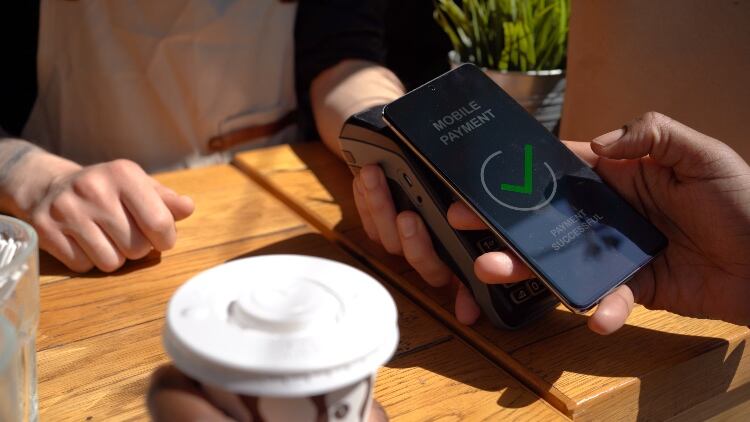
(Image: urbazon/Getty Images)
According to Alison Vasey, group product director at Zonal, the role of digital ordering has significantly grown over the past year due to Covid-19, with consumers reacting positively to the new wave of order and pay technology.
“Our most recent research in partnership with KAM Media found that 42% of people say that a venue offering mobile phone ordering and payment has become more important to them over the last 12 months – increasing to 65% for millennials,” she says.
“Our latest GO Tech report with CGA found that two in five (40%) people agree that tech has improved their experiences in hospitality,” she adds. “Furthermore, just over three quarters (77%) say they have been satisfied or very satisfied with the ease of ordering, and even more (79%) with the ease and speed of payment.”
But while technology has become an essential part of an operator’s toolkit due to the pandemic, Vasey claims that almost half of consumers (47%) get frustrated when they are “forced” to order via an order and pay app – meaning that once mandatory table service and distancing diktat to combat the spread of Covid-19 cease, propping up the bar may, once again, become the order of the day.
“Moving forwards, the key will be to give customers a choice,” she says. “With this in mind, it’s crucial that technology is used to complement and enhance the in-venue experience as opposed to replacing it.
“As operators begin to plan for a world post-Covid, enhancing the mobile ordering experience through additional features and personalisation will be vital and will enable pub operators to reap the benefits in the long-term.
“For example, operators may want to consider introducing digital loyalty schemes which can be fully integrated with order and pay to keep customers engaged with the channel,” she continues. “This technology can then be utilised to widen understanding and knowledge of customers, to create more engaging marketing campaigns and personalised rewards.”
‘The apps that will survive will be web-based’
Phil Neale, managing director of Tabology, believes that there is a place for both ordering at bar and mobile ordering from now on.
“Customers have undoubtably got used to the ease and convenience of being able to not only order from their own mobile at the table, but the payment side of things is huge,” he argues. “Everyone hates that moment you decide you want to leave and you need to try and catch someone’s attention to pay off your tab."
However, he caveats that from a consumer perspective the user journey needs to be “super simple”
“No one wants to have to download a specific app and create an account before they can order a drink,” he explains. “The apps that will survive will be web-based, so it’s as simple as scanning a QR code and you’re in.
“Operators will have the final say if their venues want to continue providing a mobile solution, so it needs to slot neatly into the rest of their operation,” he continues.
“In terms of where do we go next? Venues can get smarter with menus, imagery of delicious drinks, clever placement of your higher margin items. One of our customers saw an increase of 350% in cocktail sales, just by putting them at the top of the menu when they launched with mobile ordering.
“For me the key to longevity of mobile ordering apps is ease of use for consumer and being fully integrated into your EPOS, making them just another part of normal everyday service.”
Hard to undo technological advance
Benvolio Panzarella, global VP of sales and marketing at mobile order and pay app Fetch My Order, explains that the future pub apps once vertical drinking and service over the bar are allowed to return into a number of key areas will revolve around speed of service.
“While the Covid crisis tapers-off, pubs having fewer tables to serve means that turning tables is of extreme importance,” he says. “But today people are waiting 15-20 minutes between rounds and another 10-15 minutes to receive and pay the check due to short staffing and always-underserved outdoor areas.
“Getting paid orders in directly from guests means nobody’s no waiting to order, re-order, get the check, or to pay it.
“Pre-Covid, how many times have you wanted to order dessert, had your minds set on the tiramisu and a slice of pie, only to talk yourselves out of it because it would take too long?” he continues. “While it’s true that people go out in order to have a different experience than they can have at home, nobody will tell you that ordering from a waiter or waiting for the check was what was missing in their living rooms.
“People want to socialize with friends, eat and drink well, and get off the sofa. And if the pandemic didn’t give everybody cabin-fever, it did make ordering from one’s phone mainstream.”
What’s more, Panzarella argues that it’s hard to roll back technology in the on-trade once you’ve used an app to book a table in a restaurant or to order delivery food from a pizza kebab, for example.
“When you have embraced a really good order-and-pay solution, you’ve saved on fixed costs, raised your average order value, and turned tables like a ninja. And if in the meantime you’ve remembered why you opened your pub in the first place, you’ve found the time to be more hospitable.”
Covid-secure table apps to shift pubs towards European café culture?
While a number of Covid-secure pub measures have been hard to swallow, the rollout of order and pay apps and shift towards table service could be front of the queue for staff and customers alike in the ‘new normal’.
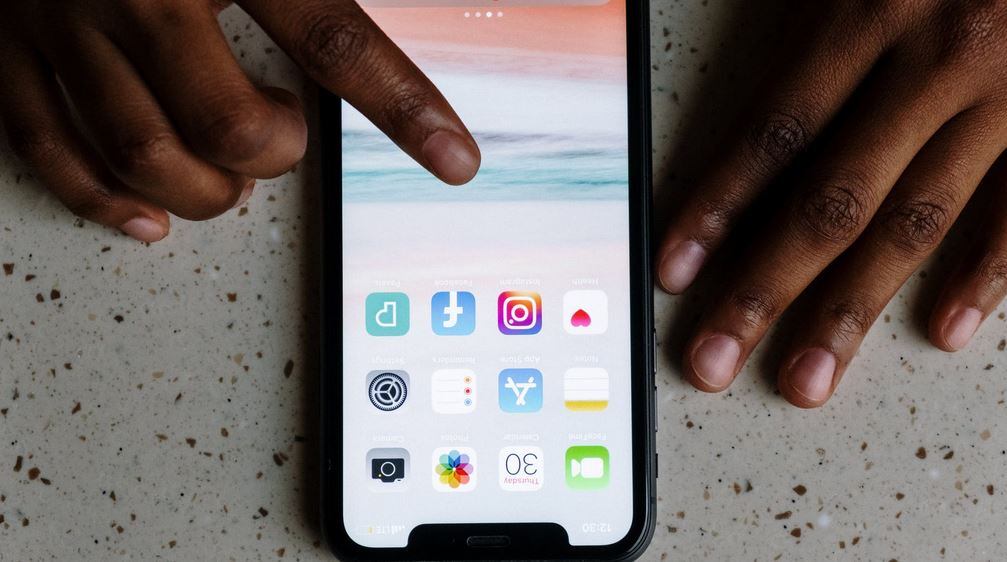
Gavin Peters, CMO of mobile order and pay solution Wi5, is confident that the Covid-19 will herald a shift in behaviour and see table ordering prevalent in Europe’s café culture become similarly integral to the UK’s pubs and bars.
“Even pre-pandemic, customer attitudes towards acceptable waiting times and ways of ordering were already changing,” he explains. “Our research shows nearly three-quarters of 18-34-year-olds told us they would sooner order by mobile than wait just five minutes in a queue.”
This is reenforced by research from global intelligence platform Streetbees which found that more than half (59%) of pub goers want table service seen in continental beer cafes and bars to continue post-Covid, with just one-in-five (22%) happy to see order and pay taken off the table.
"That sweet but all too brief window of reopening we saw in the summer, where table service was compulsory, came with its challenges, but also for many highlighted a lot of previously unseen opportunities,” Peters continues.
“It means not having to break away from friends and family to go to the bar or lose that comfy corner to someone else.
“As pubs increasingly see a rise in customers using their premises as a workspace, a trend starting to emerge before Covid-19, not needing to leave all your possessions behind to go and order will be very welcomed and beneficial.
“That scrum at the bar could become a thing of the past as customers embrace a much more relaxed way of ordering.”
Behavioural change opportunity
Peters adds that he believes that the rollout of mobile order and pay solutions will further accelerate the shift towards a table service and order ahead culture – which he believes can improve both staff and customer experience.
“People will get used to sitting down and ordering straight away without waiting for their order to be taken,” he says. “Those in a hurry will embrace having things ready for them when they arrive.
“When pubs could open, operators appreciated the technology's efficiency in terms of speed, the turnover of tables and customers, and the positive refocusing of staff time. We have pub clients who tell us it makes life a lot easier for staff to manage orders from beer gardens.”
Andy Wingate, senior category manager at Heineken UK, believes that, like staff, visitors to pubs and bars have also leant on technology to make them feel safe during the rare periods when sites have been open.
“This behavioural change can unlock opportunities for operators as they become less reliant on staff to place and process orders and take payment, allowing employees to focus on guest experience and value-adding activity,” he says.
“Connecting and reconnecting with customers is arguably more important than ever before. While operators should be taking advantage of innovations in technology that help ensure a safe and efficient reopening, it’s important to remember that the pub is a social hub at the heart of the community.
“Having spent months at home, consumers will be looking forward to the well-rounded on trade experience they have missed; from the perfectly poured, quality pint, great conversations and the friendly faces of the bar staff,” he adds.
“Operators should prioritise adhering to guidance in terms of social distancing and reducing contact, however any opportunity to welcome customers, offer food and drink recommendations and engage more personally must not be forgotten.”
Increased spend and customer data
However, it’s not just customer experience that could become all the richer for focusing on order and pay and table service. According to data from tech platform Vita Mojo, customers are spending on average 20% more through digital ordering channels compared to EPOS sales.
The key driver behind this increase has been the ability to customise and add extras allowing customers to design the perfect meal, according to Vita Mojo, offering pub customers additional time to explore a full menu without the pressure of holding up a queue.
“Before the summer, order and pay accounted for a tiny proportion of actual transactions, and now it has become an accepted habit,” Nick Popovici, co-founder and CEO at Vita Mojo says. “It’s remarkable how quickly this has become rooted in our everyday lives.
“This behavioural change can unlock a whole new world of opportunities for operators as they become less reliant on staff to place and process orders and take payment, allowing employees to focus on guest experience and value-adding activity.
“It also opens up the ability to collect large quantities of valuable customer data with these rich insights potentially transformative for businesses, allowing them to make smarter decisions and personalise the customer journey.
“Digital ordering will continue to play a huge role in the hospitality customer experience in 2021,” Popovici adds. “The operators who are thinking holistically about tech and are able to unlock its full potential will be those who survive the short term and thrive in the long term.”
Power of choice
Table ordering apps have quickly become the norm and operators should now be looking for resources that meet their long-term business objectives as well as the short-term need, according to Wingate.
“Basic options will help save time and money, but consider additional functions to incentivise consumer visits, encourage loyalty and gather insightful feedback to enhance your business beyond reopening,” he says.
Entertainment
That’s entertainment! Which tech trends can help post-lockdown pubs surprise and delight?
The Morning Advertiser speaks to on-trade entertainment experts from Audeohost and Screach to highlight the tech trends that pubs can tap into post-lockdown.

Image: Prostock-Studio/Getty Images
Having spent the best part of the last year behind closed doors, Brits have leapt down countless rabbit holes for their lockdown kicks – from “conventional” draws like Netflix’s Tiger King, Call of Duty: Warzone, and that brief moment when the German Bundesliga was the only sport on TV, to the more obscure likes of Youtube’s shockingly captivating Marbula One (look it up).
But as the likelihood of your daily pandemic walk ending with a cold pint at the pub exponentially increases, so does the need for operators of socially distanced sites to up their game and offer bespoke on-trade experiences.
According to Shane O’Neill, founder of Audeohost – a digital platform allowing pubs and bars to deliver sound directly to a guest’s smart phone – new tech and entertainment solutions need to be easy to use, solve a problem or create an opportunity, and demonstrate a return on investment.
“In the near term, getting customers back inside the walls may be an issue,” he explains. “The recent and current business impacts brought about by the pandemic have been severe.
“Re-imagining your venue as a multi-functional space and adapting to the change can be relatively easy, and both original and new concepts can be catered for.”
Screen to phone interactivity
Pubs are all about interaction, according to O’Neill. “An abundance of technology is available for managing back-end operations including financial, human resources and payroll,” he says. “Tools to manage wastage and overpour as well as centralised inventory and order management.
“Tools on the guest journey for ordering to pay as well as digital signage have exploded, especially during lockdown – many businesses already use tools like credit and debit to prevent fraud and customers walking away without paying but now with the added health benefit of touchless interaction.
“Tools for customer loyalty are available as are game tech that are tables with Pacman or other games within the table, but it is a table.”
He explains that while many of these systems are transactional, there are few digital solutions focussed on customer entertainment and enjoyment outside of the food and beverage menu – offering a potential gap in the market.
According to Scott Appleton, chief revenue officer at Screach – a cloud-based platform that allows venues to live stream HD sport broadcasts and create bespoke, audience-specific adverts for their TV screens – returning customers “attached” to tables are crying out for app-based engagement.
He tells The Morning Advertiser (MA) that when it comes to watching live sport, screen to phone interactivity could be as simple as providing a means of sharing and interacting with fellow fans’ opinions on screen – for instance via in pub polls.
“You can build an understanding of what's happening on screen and what's happening on app,” he says. “Being able to have fans and have an engaging element that they would have had in the past delivered via technology.”
Data-led ‘artificial intelligence’ approach
Audeohost’s O’Neill adds that a data-led approach can steer on-trade businesses on a “day-to-day” basis by helping operators keep tabs on event and entertainment trends among their customers.
“Artificial intelligence can also help businesses with trending their customers and what events and entertainment that customers are looking for,” he says.
“For example, in deciding what sport to show, AI can help owners and operators track people’s habits and trends and build an event calendar more aligned with customer need.”
Selective audio
One issue stemming from the reopening of the on-trade in summer 2020 – which hit Scotland in particular – was limiting music or TV volumes so that customers didn’t have to raise their voices in venue, thereby increasing the risk of Covid transmission.
“In some pre-pandemic establishments, sound policy was such that music creates the main ambiance and should not be disturbed by TV or radio stations,” O’Neill adds. “For sport, the volume could only be turned up if the majority of people are there to watch a particular game.”
According to Audeohost’s founder, his solution solves both issues by delivering sound directly to customers, whatever their taste in programming. “Volume is on a per person basis and headsets can be used to keep the sound personal,” he continues.
“Another trend that some Audeohost users embraced where permitted albeit pre-pandemic, was to attach a Bluetooth speaker to a guest phone and share the sound amongst a group of people,” O’Neill says. “This can be particularly useful after dining service has ended where audio can be easily extended to those parts of the establishment.”
What’s more, according to figures from Kantar World Panel, nine in every 10 visits to the on-trade only involves one venue, making it increasingly important for pubs to be multi-dimensional – perhaps showing sport in one area and hosting diners in another.
As such, audio and visual systems restricting noise to specific areas are becoming increasingly popular.
ADVERTISEMENT - Audeohost
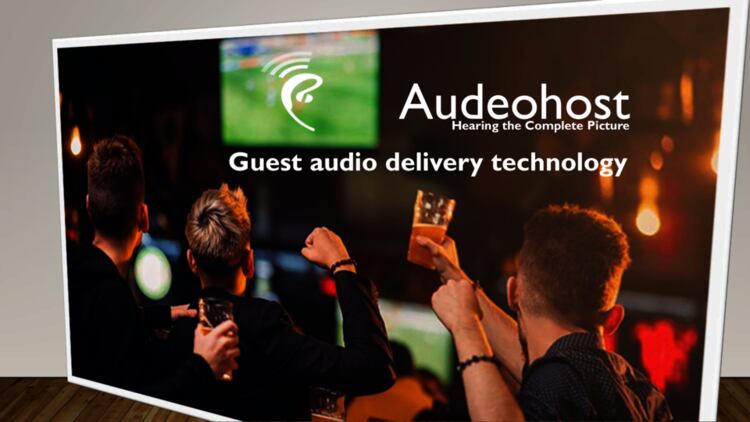
Audeohost is a technology platform that gives your guests the ability to hear any of your live TV programmes on their phone through an app.
You never have to cater to one particular need or a single programme. It gives your guests a venue driven entertainment menu from which to choose.
A silent TV is a very expensive picture frame – Audeohost puts the sound and volume in your guest’s hand (and ear) giving them a reason to stay longer and enjoy the atmosphere that your venue creates.
Audeohost can change your room dynamic from silence to a silent disco of TV commentary for customers to enjoy, day and night.
There is something for everyone – a larger customer base lets you realise a faster return on investment in TV infrastructure and programming.
Audeohost can let new and existing customers know of your events into the future so they keep coming back.
Gaming and competitive socialising
Through the rollout of colourful HD displays and camera technology, competitive socialising at concepts such as Flight Club and newly launched Electric Shuffle has become not only more popular but far more intelligent.
What’s more, supplemented by the advent of virtual reality and cloud-based gaming systems like Google Stadia in tandem with in-pub streaming, it seems a matter of ‘when’ rather than ‘if’ the sector cottons on to a winning esports solution.
Though the average competitive socialising venue is armed to the teeth with more potential fomites than you can shake a crazy golf putter at, businesses are confident that social distancing and hygiene standards won’t mean ‘game over’ for competitive socialising.
Speaking to The MA in October 2020, five-strong cocktail and crazy golf bar operator Junkyard Golf’s MD Sam Jones explained that despite having to level-up measures around physical distancing and additional cleaning since reopening in August, the business remained confident of overcoming Covid symptoms.
Over-the-top content in the on-trade
According to Scott Appleton of Screach, the dam has “absolutely burst” in terms of content rights holders going direct to consumer via over-the-top (OTT) streaming.
Recent news that Eddie Hearn and Matchroom Boxing have agreed a record-breaking deal with streaming service DAZN to replace Sky Sports as their exclusive broadcast partner in the UK is but the latest example of a rights grab by a digital first platform.
This essentially means that pubs with the technology to provide high quality streams could steal a major march on the competition by tapping into live events outside the remit of traditional broadcasters.
“Everyone from the NFL, NBA, Formula One, all now have direct consumer propositions in the market,” he tells The MA, “so the enterprise space is very quickly going to have to catch up from an infrastructural point of view to be able to deliver the future of how sports will be introduced into venues, which is where Screach fits in.”
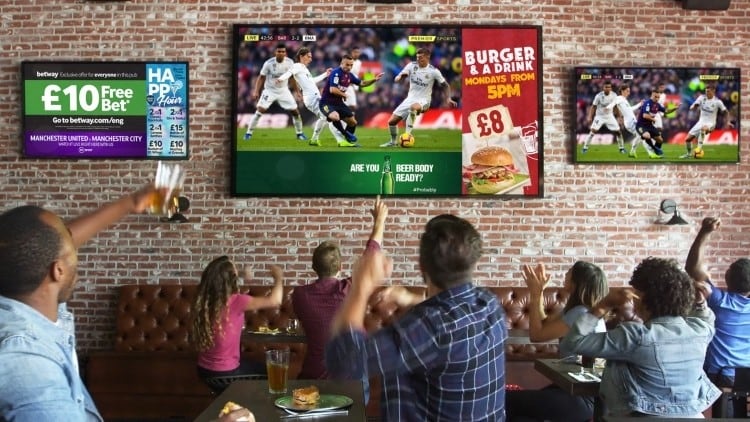
Diversifying content via non-traditional sources
Appleton adds that while sport will always be “front and centre” when it comes to a pub’s entertainment proposition – especially given the diversity offered by the exponential growth and interest around women’s sport – development in live music or comedy event streaming can help pub operators offer a truly broad events schedule.
“There are ways in which pubs can utilise content outside of sports and create an event around it,” he says, explaining that harnessing the “Zoom way of life” could help operators make the most of opportunities yielded by high profile, high demand live events such as music festivals.
As an example, he explains that operators boasting high quality streaming infrastructure could create in-venue experiences around the Glastonbury 2021 live stream after the in-person festival was cancelled.
Demand is clear after the annual showpiece sold out 134,000 tickets in just 33 minutes after a record 2.4m revellers signed up to have a chance of securing a ticket in 2020.
Cellar management
‘Our wine advisors can check stock on all our wines in real-time’
Michael Baum owner of the Château de Pommard burgundy estate explains the wider impact of popping the winery’s digital cork and how it’s led to a new launch.
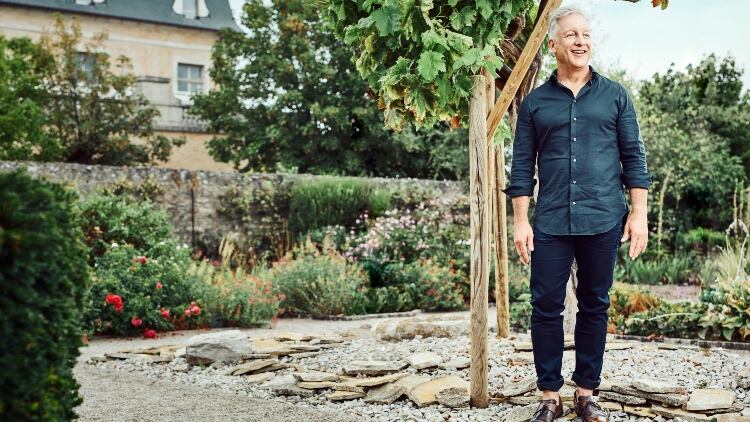
When we became the stewards of Château de Pommard in 2014, there wasn’t a shred of technology. Staff took orders on paper, and there wasn’t any way for clients to engage with us online.
Coming from Silicon Valley, it was a perfect situation to start from the ground up designing and building an effective digital strategy.
Since then, we have invested heavily in building our customer relationship management and Enterprise Resource Planning software and systems to help our team be more productive and stay in close contact with our clients.
Today, our wine advisors can check stock on all our wines in real-time. We also launched our e-commerce website two years ago.
Our winemaking team can retrace the detailed winemaking steps for every vintage and wine – our customers worldwide are increasingly concerned about what’s on their plates and in their glasses, so now they can easily access that information on their mobile phones.
‘New launch’
All this technology we put in place in the last seven years and our increased knowledge of the wine world led us to the idea of Vivant.
Vivant is the first platform for live interactive experiences for curious wine lovers who want to learn more about what they’re drinking and make better choices when it comes to wine.
With Vivant, you can travel and taste in wine regions around the world without ever stepping foot on a plane.
During our live experiences, our members learn alongside expert wine advisors. They meet winemakers, visit vineyards, and have friendly competition against others in quizzes and tastings.
We ship organic and biodynamic wines directly to our members worldwide.
Also, with remote work here to stay, we know first-hand that team building is a more significant challenge now.
We’re seeing great success with companies bringing together their teams worldwide in private experiences on Vivant.
Socially distanced pub cellar best practice must be ‘smarter’ and ‘save money’
As pubs recover from Covid-19, its likely that social distancing will see responsibility for cellar management vested in a small, dedicated team. But what can operators do to prevent the workload from spilling over?
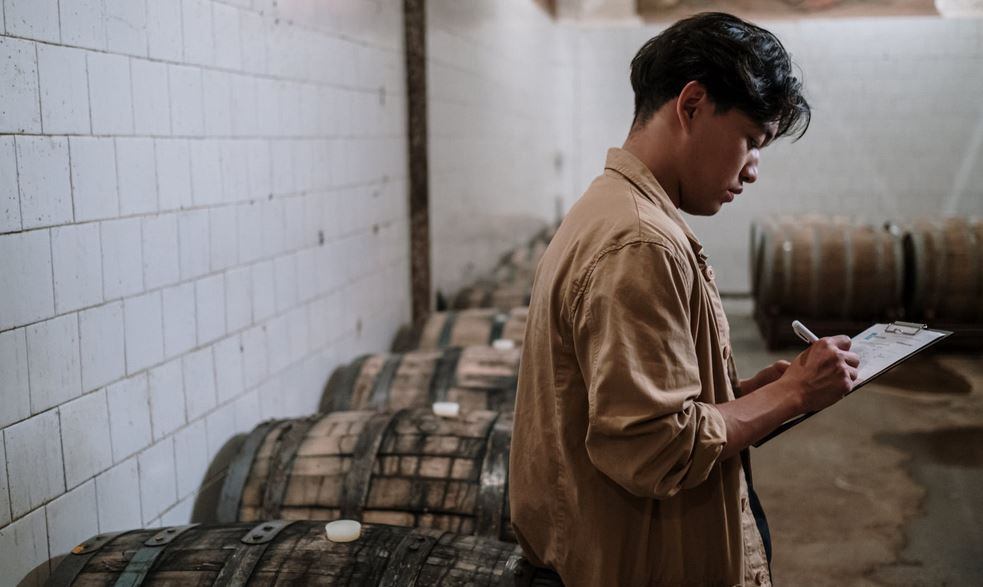
According to figures from the British Beer and Pub Association, 8,059,495,997 pints of beer were sold in 2019 – meaning that pubgoers in the UK bought almost 1.5m pints an hour on average, taking into account 16 hours trading time per day.
However, a November 2019 report by Vianet titled The Profit Opportunity Through Game Changing Insight, found that one-in-three (29%) of these are served through unclean lines – with an estimated £593m in profit poured away annually through ‘substandard’ beer quality.
With a third (64.2%) of operators surveyed by Christie & Co forecasting that it will take up to three years for pubs to return to pre-Covid trading, watching vital funds flow down the drain on this scale could very well stifle pandemic recovery.
“With the industry taking an absolute battering as a result of the pandemic, the outlets that have survived 2020 will be looking at ways to work smarter and save money - but without cutting any corners or lowering any standards in quality,” Beer Piper’s Jeff Singer explains.
“This can be a tough ask, of course, but there are some ways that landlords can save money behind the scenes without losing staff members, closing the doors at quieter times or sourcing lower quality products.”
A one-person job?
Looking to the cellar can help, Singer says. The Cask Report 2019, for example, found that having good cellar practices improves yields by 7%, and that good beer quality adds 3% to beer sales – which can add an extra £5,500 to the average pub’s bottom-line.
However, with social distancing best practice dictating that, where possible, only one member of staff will be able enter the cellar per session for the foreseeable future, it’s essential that operators do whatever possible to make it as manageable as possible.
“Adding insulation to equipment, doors and cellar hatches can help to save money in the long run and ensuring refrigeration equipment is working as efficiently as possible is also something else to consider,” Singer continues. “Making sure all equipment is maintained by professionals is also something that will save you money in the long term.
“Additionally, installing a high tech, automated beer line cleaning system instead of cleaning lines manually will save you a lot of money, a lot of time - and staff hours - and, more importantly for cost saving, can help to substantially reduce beer waste.”
Thorough routine and assessment
Andy Wingate, senior category manager at Heineken UK adds that a good cellar management routine is an essential part of any pub’s success, helping to produce quality pints, boost profitability, and make the process more manageable.
“Due to the long periods of closure over the past year, cellars will likely not have been maintained as regularly and consistently as usual, meaning a thorough, deep clean and safety assessment should take place prior to reopening,” he tells The Morning Advertiser.
“It’s important to consider the way cellar equipment was left during the periods of closure to ensure the hygiene of the bar and cellar, and to re-start dispense systems correctly for the reopening phase.”
He adds that pubs should consider having a dedicated person or couple of people for cellar management throughout the week and that they should be reminded to wash their hands thoroughly beforehand and afterwards.
What’s more, like Singer, Wingate advises thorough line cleaning and temperature management routines to hopefully make their workload more manageable.
“Ensure line cleaning is carried out to correct procedures every seven days using brewery recommended detergent,” he says. “Remove and clean nozzles in hot water after every session, use sanitiser spray for keg couplers, keg wells and cask taps, and ensure the sump is clean and working correctly.
“Always wear the correct PPE when line cleaning,” Wingate adds.
“Keep cellars at a constant temperature of 11-13°C by installing a wall-mounted thermometer, regularly topping up cooling equipment with water, checking fans and condensers are free from dust and blockages and keeping a planned schedule of maintenance to avoid costly breakdowns,” he continues.
EPoS
Covid-19 has fast-tracked move to a cashless society ‘by around ten years’
Though cash remained the on-trade’s king right up until the pandemic shuttered sites in March, the spread of Covid-19 and new anti-virus measures appear to have hastened a contactless coup in Britain’s pubs.
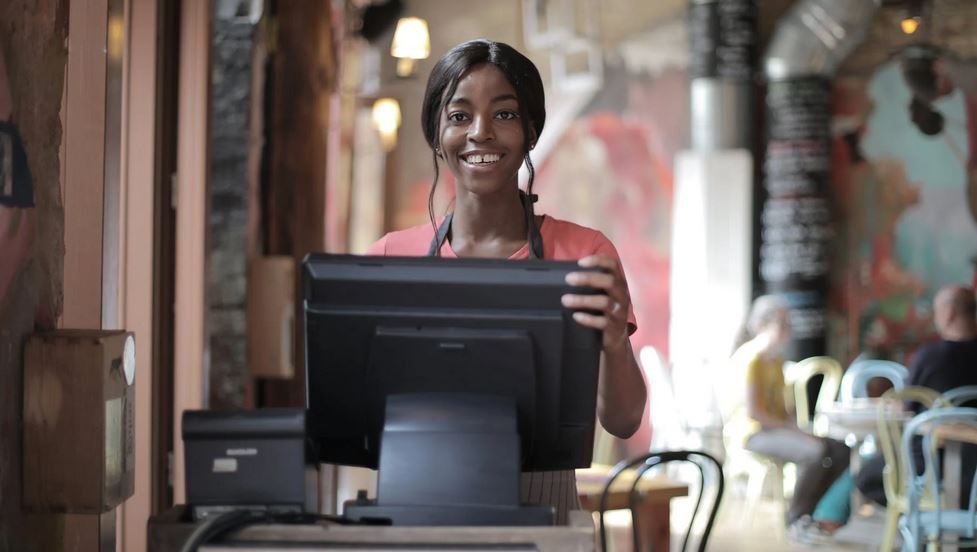
According to Paymentsense, more than 7.4m Brits are living a “cashless” life – a number which UK Finance claims has doubled in the past two years and appears to be rapidly increasing due to the ongoing pandemic.
The merchant services provider’s data also states that the average increase in contactless card use was 79.15% in 2020 – a 9.35% spike versus the previous year – while Apple Pay and Google Pay held an average of 6.5% of transactions in 2020.
What’s more, data from Vita Mojo found that ordering and paying at table has seen an extremely high adoption rate amongst customers during the Covid-19 pandemic and, on average, accounted for up to 90% of transactions while sites were able to trade last year.
The consensus seems that with more and more businesses reluctant to accept cash, and consumers preferring contactless methods to stop the spread of germs, the decline in cash payments is poised to continue at pace.
“Coronavirus has undoubtedly forced change in our lives and shopping habits,” Jon Knott, head of customer insight at Paymentsense says. “As more businesses refuse cash as a precaution against Covid, it makes perfect sense that the use of contactless cards are on the up this year, more than ever.”
Paymentsense data also revealed that while major cities are transitioning to cashless payments at a “rapid” rate, smaller cities have kept pace, with St Albans, Halifax and Brighton the UK’s top three adopters.
“Smaller towns are increasingly choosing contactless methods,” Knott adds. “With the pandemic ongoing, it seems that a cashless Britain may be here sooner than we thought.”
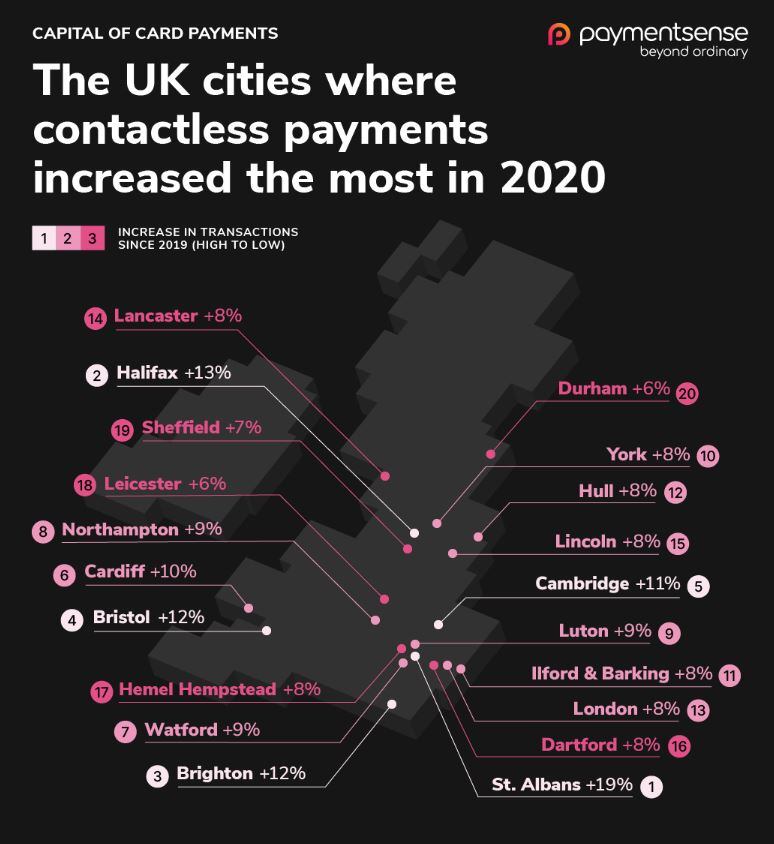
Covid has ‘killed off cash’
Anne Boden, CEO and founder of digital challenger bank Starling Bank estimates that the pandemic has fast-tracked the move to a cashless society by around ten years.
“Trying to roll back cashless is like trying to hold back the tide,” she tells The Morning Advertiser (MA), “the challenge is making sure it works for everyone.”
“Working for everyone” includes ensuring that pub operators are equipped to cope with the quiet loosening of king cash’s grip on the UK on-trade.
While Piers Baker, owner of the Sun Inn, Dedham and Church Street Tavern in Colchester, Essex, tells The MA that Covid has “killed off cash” at his sites, he explains that the coup has yielded a number of pub positives.
“It came about as a bit of an accident as going to the bank to get the change needed for cash transactions was taking up a lot of time due to queuing, so we just gave up and thought we would try cashless for the first weekend,” he says. “No complaints on the whole so we have kept it.
“As a result, we have decreased the time taken on end of day accounting, improved till reconciliation as no errors on card sales, decreased the cost of our insurance as we now have no cash on site nor the liability of transporting it to the bank and reduced fees as card transactions fees are lower overall to bank fees for change exchange and cash lodgements."
What’s more, Baker adds that going cashless has saved a considerable amount of time going to the bank for change exchange and cash lodgements, reduced the risk of theft and sped up customer transactions.
CRM
‘We have such a rich amount of data at our fingertips. But the question has always been – what to do with it?!’
Brakspear’s Dan Turner explains how a CRM system has made running the operator’s pubs a more streamlined process.

(Image: andresr/Getty Images)
Dan Turner, head of marketing at the Oxfordshire-based operator of more than 130 pubs, Brakspear, claims that using a customer relationship management (CRM) system – in their case, Acteol, an Access Company, can bring all of a pub’s data points into a “single person view”.
“In hospitality we have such a rich amount of data at our fingertips. But the question has always been – what to do with it?!” he says.
“We have to concentrate on creating an experience for our guests. For example, Acteol an Access Company allows us to send almost immediate communication to our guests based on their transaction data.
“If they bought a particular dish, we can tell them where we sourced the ingredients from, which wine it goes well with and more.”
Turner adds that this can “seriously help” with industry issues such as team recruitment and retention by simply not needing to train team members to such a high level. “You can get your technology systems to do it for you,” he believes.
“Also some benefits to using a CRM platform to gather multiple data sets across the pub group, to track customer visit and spend behaviour i.e. identify most loyal customer, regular after work drink pub, Sunday roast pub, recency and frequency modelling, favourite day, day part and dwell time, average spend and favourite food and drink items to generate segmented relevant campaigns using personalisation and dynamic content etc.”
Kings Arms race: how can pubs keep up with the rollout of new CRM systems?
On-trade measures implemented to stem the Covid tide in pubs have thrown up a stream of new tech solutions to help operators stay on top of customer data. Here’s what publicans need to know.

According to Wi5 Technologies’ CEO Prask Sutton, “times of unusual circumstance” such as a global pandemic yielding the blanket closure of more than 40,000 pubs, are generally accompanied by a “great push forward” in tech.
As such, in almost a year since Boris Johnson called last orders in pubs and enforced the UK’s first lockdown, a swathe of new table ordering, track and trace, hospitality booking, staff management and customer relationship management (CRM) solutions have materialized.
However, Sutton explains while the advent of new apps and technology behind closed doors has been rapid, the fact that publicans preparing to resume trade don’t necessarily have the time and resources to expand their digital knowledge – and ask the right questions – at the same pace is a concern.
“That's my biggest fear,” he told The Morning Advertiser (MA) in June, “the digitisation of these businesses and people not necessarily knowing what they don't know.
“If someone is proffering a digital solution ask them about safeguarding, ask them about what measures are in place,” he added. “What accreditation do they have? Who are their partners? Who is actually accepting the payments, who is the acquiring bank? All these sorts of things.
“You want to make sure you're dealing with experienced players in the space and it isn't just somebody whose knocked up a website because they've seen the opportunity and have suddenly come up with something to service a clear need.
“There's so much that's sprung up since the pandemic hit, so many solutions,” Sutton continued. “I'll probably see dozens every day and you just think anybody using that could be in for a real nasty shock at some point.
“It's just sad because you think a lot of businesses have probably gone for them because of price – but if anything they're inviting a whole host of other problems that they probably don't realise exist just to compound the struggles that have been created by the pandemic.”
Surge of new customer data
According to Airship CEO Dan Brookman, many businesses were already using several CRMs before Covid, covering areas such as booking, feedback, click and collect and even WiFi to manage customer relationships.
“There is a whole world of data available through these platforms which means so much of the hard work is done,” he says. “The final step is to bring them all together to truly understand your audience.
“A CRM is valuable because you own it,” he continues. “You have the ability to be reactive, to leverage your audience and let them know what you have to offer.
“Most businesses have many new revenue streams, and automations that welcome customers as they sign up and tell your story will help drive these opportunities.
“When customers return, behaviour is likely to have changed. It may be that we reopen under tiers and with restrictions in place, such as the ‘rule of Six’. If this is the case then pre-booking will be prevalent and this will give you a surge of new customer data to engage with.”
The ‘value exchange’
Brookman adds that any new pub CRM installed off the back of the track and trace drive towards digital “must be connected to the platforms that are already used in the business”.
“Otherwise, you’ll create a mountain of work in extracting data from these platforms and importing it into your CRM,” he explains. “It will be constantly out of date and much, much harder to maintain GDPR and consent.
“What will make a CRM sing is the transactional data, like the booking, purchase, feedback and WiFi detail, as this proves the customer's presence in your business which means you understand, and can affect, visit frequency,” Brookman continues. “It also means that automated journeys and campaigns can be targeted – and also suppressed.
“Finally, it needs to be easy to use. Most businesses don’t have a dedicated CRM manager, or in a lot of cases digital marketing manager, so the platforms need to be intuitive and filled with features that save time.
“Automation really is the key,” he adds. “Automated welcome, birthday and recency and frequency journeys will deliver real revenue opportunities. They run and run automatically.”
For operators who are totally new to CRM systems, Brookman advises them to think about how they are going to frame their efforts with your customer – or “the value exchange”.
“For instance, ‘Friends of the Travellers Arms’, ‘Gusto Gold Club’, ‘Byron Club’ and ‘Alexander's A-List’ all provide a wrapper for your efforts,” he says. “A lot of operators start out with a simple Birthday Club, but it's good to chat to customers at the very outset to see what would resonate with them and get them to visit more often.
“It means that you can easily explain to the customer what they are going to get in exchange for them giving you their data. It enables you to ask for a date of birth so you can send them something nice on their birthday, and it gives you a connection that you can then use in your marketing to bring your customers together into your embrace.
“Finally, don’t try to do everything at once. Build up your programme, brief your team so they understand it and can chat to customers about it, measure and understand the results.”
HR
How can technology boost staff recruitment and retention in hospitality?
The MA digs into how technology has improved pub operators’ ability to recruit the right staff and train the ones they already have.
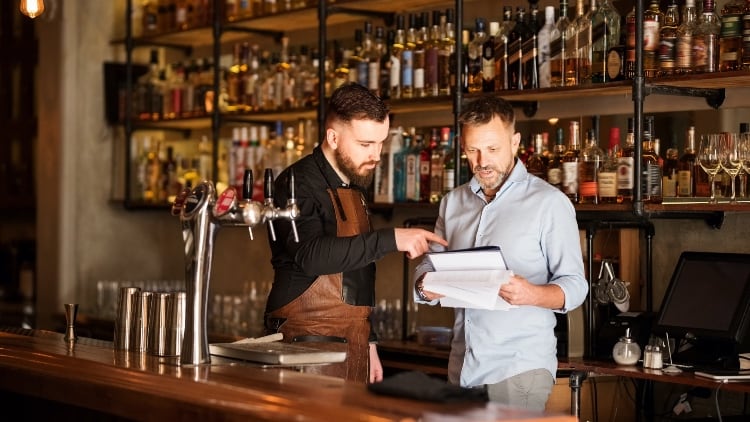
Image: NickyLloyd/Getty Images
According to Helen Corfield, operations support manager at Peach Pubs – which placed at number 24 in workplace engagement firm Best Companies’ list of top firms to work for and hailed as the sixth best leisure and hospitality company – technology has played such a pivotal role in their recruitment process that they’re striving to go “paperless”.
"We have recently brought in two new platforms to help us with recruitment and training,” she explains. “Firstly, we have an applicant tracking system, powered by Talent Funnel, which is fondly known as FRED – Find Recruit Engage Deliver. This ensures that no application goes unnoticed and enables us not only to respond personally to everyone who applies to us for a job but also, importantly for us, to be personally peachy to everyone, even if they are unsuccessful in joining us.
“We have our own database in the applicant tracking system so even if a job is not available right now in the candidate's preferred location, as soon as one does become available we can reach out directly having used a tagging system.”
‘Keeping things slick’
Corfield adds that technology also keeps Peach’s team's data safe and secure.
“The old way involving printing out contracts and enrolment forms is just not modern enough; even if a candidate did have a printer at home, it's unlikely to be attached to their phone which is how most candidates job search and communicate,” she says.
"That said, we would never want to take away the personal Peach touch completely; picking up the phone and interviewing in person and having candidates approach us in pubs with CVs is still important. The technology simply means we can quickly progress through the recruitment process which is key at the moment.”
On top of this, Corfield explains that Peach is also using technology to make on-boarding “as seamless as possible” for new team members.
“It keeps things slick,” she says. “New team already have all the relevant documents they need and they are already loaded onto payroll. On someone’s first day with us, no-one is having to worry about the admin side of things, they can jump straight into action.
“For our managers, anything that helps take away admin from the process is a massive bonus; it means they can focus on doing what they do best, which is running great pubs and training their teams.”
‘Problem solving in a creative way’
Lee Woolley, director of learning and organisation development at Stonegate, explains that since the start of the pandemic, the pub operator has used technology to both train and engage with teams and allow them to interact with both management and each other, despite the company’s size.
“We’ve used a number of bespoke products to help us to do this, along with building our own internal tools and using off the shelf products in our own way to help us achieve our goals,” he says. “For us, it’s about problem solving in a creative way to meet the needs of our digitally savvy teams.
“When we first went into lockdown, we needed a way to keep our teams engaged. But in a company of 14,000 with hundreds of micro businesses making up the whole, this was no mean feat. We needed a solution that allowed us to reach everyone in the business directly, in a way that we had never had before.
“In the first week, we quickly repurposed our online training platform, Academy Online, to include the ‘Stonegate Community Hub’,” he adds. “The segment of the platform was designed to ensure our furloughed staff still enjoyed the same sense of community we pride ourselves on instilling across the business.”
‘Incredible technology’
Additionally, Woolley explains that new technology has allowed Stonegate to deliver virtual classes, videos, individual learning, and one-to-one coaching, online, before face-to-face workshops and on-job learning recommenced once pandemic restrictions permitted.
“We embraced the new learning practices adopted during lockdown, with shared online recordable whiteboards, on-screen annotation, break-out rooms, working in virtual groups, recording all workshops to watch again and collaborating online on tasks, such as business plans and charity events, which has now all become part of the core of study,” he says.
“Developing these online tools paved the way for 97% overall engagement from our enrolled team members during lockdown.”
He adds that, in his opinion, the most exciting technological advancement Stonegate adopted is specialist virtual reality training, used by psychologists in coaching training, to train new mentors partaking in the operator’s female mentoring programme.
“This incredible technology allowed those taking part in the training to engage in a fully immersive experience from their own homes,” he explains. “The training day took place in a virtual penthouse on Miami Beach, where participants created their own avatars to both attend the training and practice their mentoring skills with others on the course in the virtual space.
“The technology allows you to do almost everything you could do in a normal meeting room, from writing with the virtual pen taken from behind your virtual ear, to making handouts to share on virtual iPa
Human Resources has come to the front of almost all businesses in recent months, but there is scope for long-term changes.
Trading under coronavirus restrictions has increased the demands on the UK pub workforce, with additional health and safety regulations to adhere to.

However, as pub employers struggle to make ends meet and keep their business afloat, redundancies in the sector have risen by a significant amount this year. Around 60,000 hospitality jobs were lost in 2020 according to sector software provider Fourth, representing a 28% drop in overall hospitality staff headcount compared to December 2019.
Organising a team is more important than ever but with mass collaboration days and training conferences out of the picture for the foreseeable future, virtual training is the way forward.
The rise of online training sessions may be a good thing though, according to the head of training at Star Pub & Bars.
Tracy Bickerdike told The Morning Advertiser (MA) that delivering courses online meant that prospective Star publicans were more engaged in the content of the pub company's Innside Knowledge workshops.
She said: “It was important to us to make sure that it was as good as, if not better than the face to face course. From our experience of running the courses over the month of May, we feel that there are definite benefits to do it online. Everybody gets to participate.
“In classroom environments, you sometimes get the person who answers all the questions and knows everything, whereas in this virtual environment they have to wait to be asked. They all have to participate. We have a greater level of participation in the virtual course.”
Online platforms can also be utilised for wellbeing and team-bonding purposes. Many operators have been running regular catch-ups with their teams on video platforms like Zoom since the first lockdown or inviting staff to take part in virtual activities such as yoga sessions or pub quizzes.
What’s more, founder of the Burnt Chef project Kris Hall says pub employers must recognise the huge challenges of staff retention and how workplaces that prioritise staff wellbeing encourage staff retention.
He said the project has been working with employers to “navigate conversations of mental health” within businesses. “People are their assets,” he said.
Lucy Do, founder and owner of the Dodo Micropub in west London, told The MA she believed the pub sector needed to do more to tackle racism.
“Sadly, racism has affected me personally in my own micropub which I’ve specifically set up to be a welcoming and inclusive space for all regardless of gender, race and sexuality,” she explains. “From your ‘everyday’ micro aggressions like someone asking, ‘where are you really from?’ when Brentford clearly isn’t the response they were hoping for, to plain outwardly racist remarks like the time I was told you don’t often see Asians running a pub, it’s normally a takeaway business.”
“Ending racism and being actively anti-racist is a challenge that everyone should be taking responsibility for and that includes the UK pub sector,” she said.
“It’s very apparent to insiders and outsiders of the industry that it is very white, male dominated so there can definitely be more work done to represent and champion diversity.”
Marketing
On-trade digital shift during pandemic presents ‘a world of opportunity’ – if done correctly
On-trade marketing experts discuss how technology has allowed them to grow closer to their customers over the past year and ultimately gather information on the events, experiences and personalised communications that they want most when they return after lockdown.

(Image: Getty/Yagi Studio)
According to Al Henderson, chief sales officer at Eagle Eye, an accelerated shift towards digital and and increased amount of customer data collected through online bookings, test and trace, mobile apps and other digital initiatives is one of the on-trade’s standout Covid symptoms.
“This presents a world of opportunity to get a better understanding of customers and build better customer engagement, but only if done correctly,” he says.
“With all these new digital channels, hospitality providers need to ensure the customer journey is fully connected to provide a seamless, personalised customer experience.
“By leveraging customer data with both your digital channels and in venue systems such as your point-of-sale you can personalise the experience and reward the behaviour you seek.
“Those operators who have the strategy and systems in place to connect the customer journey will emerge stronger from the pandemic.”
Operational and marketing benefits
According to Simon Allison – head of marketing at the operator of the award-winning Mr Fogg's, Cahoots, Bunga Bunga, Barts and Maggie's, Inception Group, working with a guest Wi-Fi, analytics, and digital marketing solution provider has helped them make sense of a swathe of new data under GDPR rules during the last five years.
“That period looked daunting but the quality of data we now get is far richer and we are using it in a more personal way,” he says. “We use that data to gauge the demand for potential experiences we are looking to develop and market, it gives us a far greater level of confidence heading into the launch of an experience or product as we know that in theory our market is keen for it.
Allison adds that the pause in trading due to the pandemic gave Inception Group an opportunity to drill into its consumer data and develop new experiences based on the information gathered.
“A more recent use of technology enforced by the pandemic is t the development of our app, with Pepper, which has been beneficial to us in operation and marketing senses,” he adds. “We have been mindful of the limitations of an app within our venues that are heavily reliant on the interaction between our teams and our guess, but it’s a great tool for communication with guests before and after they visit our venues.
“The Inception Group app is the place where many of our guests go to as a first port of call for up to date information in terms of new regulations, booking policies, opening hours but also new products/experiences and upcoming events.”
Further reading:
A-Z of on-trade marketing – From the rise of TikTok and the resurgence of Facebook to bar-top point of sale, experts explain what to factor in to your on-trade marketing in 2020.
Doors closed, DMs open – social media hints and tips for pubs during the coronavirus shutdown – With publicans unable to speak to customers directly during the Covid-19 shutdown, digital experts from Molson Coors and communications agency Jam outline why it’s important for pubs to be on the same social media page.
What marketing lessons has the Covid pandemic taught hospitality businesses?
How have pub, bar, restaurant and hotel operators tailored their marketing strategies during the coronavirus pandemic, and what takeaways can help shape post-pandemic branding?
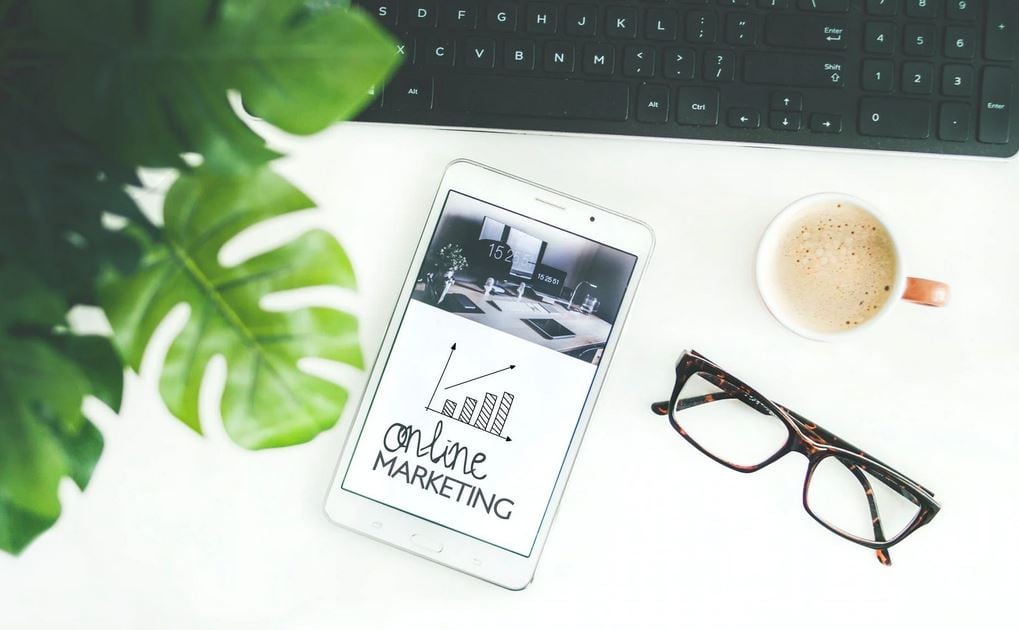
In the early stages of the first lockdown in March 2020, creative agency Wunderman Thompson UK examined tens of millions of posts on sites such as Twitter, Facebook, Instagram and Mumsnet to gauge what impact the Covid-19 pandemic has had on how, why and what people are sharing on social media.
It found that the number of posts on social media using the word ‘community’ jumped by 82%, that almost half (47%) of social posts mentioning ‘community’ or ‘community spirit’ were shared by those aged 55 or older and that references to the spirit of the Blitz increased by 70 times year-on-year.
What’s more, it found that the number of social media posts mentioning fashion or travel almost halved, the number of posts about sport fell by 46%.
Additionally, while pub giant JD Wetherspoon saw its mentions soar by more than 3,000% following Tim Martin’s announcement that he didn’t think pubs should close, the sentiment score of JDW’s social mentions plummeted from 61% positive to 80% negative.
“The analysis shows that we’re beginning to see the green shoots of collectivism and people pulling together in the interests of their communities,” Neil Godber, joint head of planning at Wunderman Thompson said in May 2020.
“If the national mood is shifting to one where all of us are a little more mindful, doing what we can for each other and wanting to lift everybody’s spirits, this is also likely to have an impact on how we’re spending our cash.
“We’ve already seen how sentiment can sharply change when a brand is perceived to do the right – or the wrong – thing.”
Personal branding ‘exponentially more important’
Historically, pub operators have been the faces of their communities – something that Tonya Eberhart, founder of branding agency BrandFace, believes could be due a comeback post-pandemic when it comes to site marketing.
According to Eberhart, while business branding is important, personal branding has become “exponentially more important” since Covid-19.
“A consumer's relationship with a business is enhanced by the 'person' who represents the business,” she explains. “That person can be the owner or founder of the business, management, or a customer service representative that customers are dealing with in the moment.
“Many times, that particular person is also the reason people choose one business over another.
“We have been affected on many levels with regard to human interaction, so personal branding takes an otherwise cold approach and turns it into a warm opportunity,” she continues. “One example of that is the massive growth of platforms like Zoom.
“Though these are unprecedented times, businesses can embrace opportunities like this to become more real, more engaging, and more personal.”
‘Steady stream of relevant, authentic news’
Speaking to The Morning Advertiser (MA) in May, Jaime Gee of hospitality communications agency Jam suggested that the pandemic had put onus on pubs to provide steady stream of relevant, authentic news will keep their business front of mind with consumers and stakeholders.
“Keep your target media up to date with news stories about any initiatives you are taking part in, charity or community work and any news about how you may be tweaking your offering to provide new services in light of the situation – offering take-out food for example – or discount vouchers for future meals or drinks,” she explained.
“There may not seem to be much positive news about at present, and it can feel a tad tricky to navigate the landscape to ensure that your tone is sensitive, but at the same time, the news outlets still require content – and uplifting stories might be exactly what’s required.”
Be ‘tactful and timely’
Molson Coors’ head of digital, Jack Daniel, also told The MA that while social media is a vital link between a pub and its local community, it’s important that you have something tactful and timely to say rather than trying to break the internet.
“All content needs to be sympathetic to the current situation, but also be true to your usual tone of voice – it’s a balancing act,” he said. “Be clear about what you want to talk about by planning content in advance and map out those key themes and topics your customers would want to hear about, but also stay close to what’s going on in your local community during this current time.”
He added that publicans – especially those in more rural locations – are more likely to see their social pages serve as community hubs and should factor this into any social media content, especially as the country recovers from its Covid symptoms.
“Helping people stay connected, whether that’s through virtual pub quizzes, sharing food and drink pairings, or just creating an online place for customers to keep in touch with each other through this difficult period keeps pubs at the heart of the community even in these unusual times,” he added.
Keep relaying ‘appropriate information’
Owain Powell of UP Hotel Agency – a specialist digital agency for hotels across the UK, Europe and USA – has been supporting a number of hotels sustain “brand presence” during the pandemic, when travel intent and bookings have bottomed out during extended periods of site closure.
“Seems common sense I know, but many hotels are not relaying the appropriate information on their homepage, or even updating their Google my business listing to state - temporarily closed,” he says.
“Where hotels have been open during the pandemic, messaging around being 'safe and secure' has been a must, whether incorporated into a banner or pop out on the homepage.
“Also, for those hotels closed during lockdown, messaging to indicate so,” he adds. “Those that remain open for key workers or essential business travel – likewise.
“I've been shocked to see a number of hotels rewriting their homepage content to indicate that they're closed which, in rewriting their website copy, is detrimental to their short- and long-term SEO.
“Also, a number of hotels have not been offering anything to try to whet the appetite for those of us who can't wait to travel, just indicating they are closed.”
Dialling down spend, but not pausing activity
Powell adds that while the pandemic has put financial pressure on hospitality businesses, operators who’ve shifted into low, rather than no, marketing spend have reaped the rewards.
“Dialling down marketing, ad spend, has been a common theme - but pausing activity – definitely not advised,” he says. “If anything, there's an opportunity to pick up and takeover presence both through paid and organic versus competing hotels whose marketing activity has ground to a halt during the pandemic.”
In terms of lower cost, but impactful marketing opportunities, he pinpoints vouchers and gifting as having been particularly successful alongside spring and summer 2021 offers on room rates
What’s more, he advocates maintaining brand visibility through Google Ads and Facebook Ads – tailored with appropriate messaging.
Finally, he states that “maintaining a story” is a low-cost approach that can yield results. “A number of the hotel's team may be on furlough, but perhaps use down time for a Q&A with the chef, if the food and beverage offering is particularly popular, about a prospective new menu, using local suppliers and supporting businesses local to the hotel,” he says.
“Great time to relay corporate social responsibilities, so has the hotel been supporting key workers during this time? Populate the blog and get this information out!
Stock taking
How can technology help pub operations run a more profitable beer offer?
The Morning Advertiser speaks to beer experts to discuss what impact technology can have at both ends of a beer line.
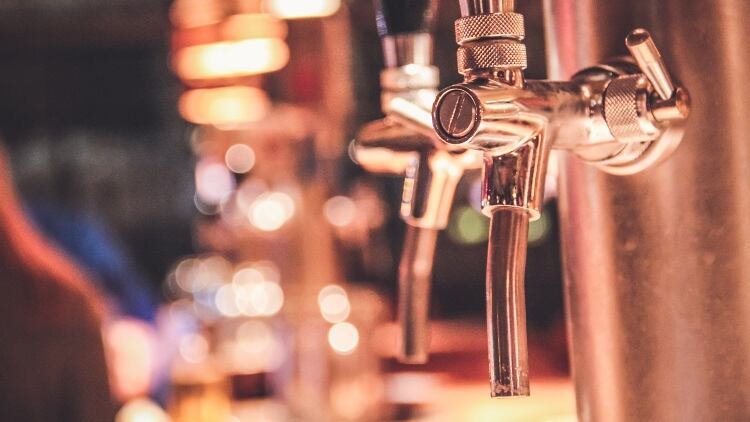
According to Sophie Holt, manager of Edinburgh’s Lost in Leith, the fulcrum of their beer operation – and managing an ever-changing line up – is a digitised menu.
“At Lost In Leith we run a digital menu that our customers can access online by scanning a QR code,” she explains. “As opposed to using a physical menu, having the menu online means we can update it in real time as frequently as our beers change, which can be multiple times a day sometimes as we have eighteen different draught offerings.
“This means our customers will always have an accurate idea of what we have available without needing to leave their seat or ask a member of our team.
“It also allows us to change the layout of the order the beers are listed on the menu, which can be useful to encourage sales of a certain product as some customers will just choose the first thing on the list rather than scrolling down.”
Managing stock levels
Holt adds that descriptions can also be updated in response to customer feedback if it’s suggested that they may be unclear or want additional information for a certain beer.
“The system we use also allows us to add limits to products, meaning as we near the end of a keg we can estimate how many serves we believe to be left and add this limit to the product in the online back office which means customers will not be able to order more than we actually have to sell,” she continues.
“In the online back office, we can also have the beers next to go on made on the menu ahead of time but left inactive until ready to be sold, when it is then one simple click to have it available to be ordered by our customers.
“Our till system also allows us to look at our sales of certain products or departments for any particular period of our trading, from months down to minutes.
“This means we can look back at volumes sold of a certain beer we get in regularly to anticipate how much we will need to order for upcoming weeks, or even compare what styles of beers sell better at different times of year or weekdays compared to weekends to aid us in choosing what to order."
A £365m problem
As the on-trade returns to trading, however, a number of keg thefts have threatened to stop operators in their tracks – in April, for example 43 kegs were stolen from Arundel Brewery in West Sussex.
Even though the kegs were empty, the incident still inflicted a loss of more than £2,000 since each keg costs around £50,” according to Matthew Margetts, director of sales and marketing at Smarter Technologies.
“This is not just a problem in the UK – global keg losses are estimated to cost the brewing industry between £220m and £365m each year,” he says.
The causes of keg loss are not limited to theft, however. Wastage and loss can also occur due to distributors gathering the wrong brewery’s kegs when collecting empty containers, identification tags being knocked off, tags rendered unreadable by wear and tear, event organisers failing to return kegs or stolen kegs being sold to scrap metal merchants.
“The best way to prevent theft, damage and poor handling of beer kegs is to increase the visibility of their location and condition throughout the supply chain,” Margetts explains. “These days, kegs can be fitted with smart keg tracking sensors connected to the internet of things.”
“Reporting information to a central management dashboard, these sensors offer real-time visibility of the entire keg fleet, at any time, from anywhere in the world.”
Remaining profitable
With both GPS and radio-frequency identification technology, modern smart sensors not only track a keg’s location, but can provide a wealth of data on a keg’s current condition, including temperature, levels and movement, according to Margetts.
“If there is a change in location or condition that could signify theft, accidental damage or tampering, the system will send an instant alert to any connected device. This means that swift action can be taken to remedy the situation.
“Along with preventing keg loss, the data from a smart keg tracking system can also be analysed and used to optimise the beer keg supply chain efficiency. For example, a supply chain manager can identify and address common bottlenecks, thereby speeding up the supply process, reducing overheads and improving the customer experience.
“With total coverage, visibility and control, breweries, distilleries and the hospitality industry can prevent keg loss and have a better chance of remaining profitable in these trying times.”
Do androids dream of electric stockkeep?
Though expert stocktaking will – for the foreseeable future at least – involve a largely human element, accompanying technology has become increasingly prevalent behind the bar.

When asked if there are any areas in which stocktaking in hospitality businesses can be more streamlined, Brett Websdale, chairman of the Institute of Licensed Trade Stock Auditors, states that the “simple answer” is no.
Though this may be the case, the fact that so many tech and software solutions have been developed over the years to assist the process means that the rug hasn’t been entirely pulled from under this attempt to take stock of taking stock in futuristic, more tech savvy, pubs.
“When EPOS systems were introduced over 30 years ago, it was sold as the business tool that will solve all your stock deficits, increase profits and you would not require the services of a stocktaker,” he explains.
“This would require an employee trained to carry out the counting and data entry as well as interpreting the results usually at a higher cost to the business than the original stocktaker.
“Thirty years on, the EPOS systems available have increased the number of reports you can produce, help you change your selling prices quicker, but you still need the services of a professional Stocktaker to analyse the results.”
Tech solutions ‘should be embraced’
Venners’ managing director Scott Hulme concurs that, today, EPOS systems are “probably the most significant and frequently” used technology to support pubs in stock management.
“They’re certainly here to stay and are likely to continue to develop and be perfected to make the journey of stock data input and output more efficient, accurate and user friendly,” he tells The Morning Advertiser (MA).
“Such developments should be embraced and they’re why Venners as a business have introduced an online client portal, which aims to assist in that journey, by integrating both the stocktaking process and stocktaking data with client EPOS systems.”
Hulme adds that the “technology of things” is probably the next step that many operators may consider moving towards in the future.
“Purchasing automated bar measuring devices and systems are likely to become more popular in pub stock management as these technologies continue to develop,” he says. “They’ll certainly be great in helping businesses reduce shrinkage and control stock more effectively.
Human element won’t be fully substituted
Hulme adds that when talking about technology, most of our minds “wander to the future utopia where we’ll use a fully-fledged AI operation”.
“With the speed at which technology develops this often doesn’t seem to be too far off in the future,” he says.
“The truth is though, that until we reach that stage of AI and robotics, and until every aspect of your operation is integrated into that process, we’re quite a long way off.
“The human element of stocktaking won’t be able to be fully substituted by technology until every gap in the operation is closed.
“Particularly when it comes to analysing and interpreting the data and the operation’s functioning, stock management will continue to need a personal touch.”
‘Common misconception’
In keeping with Hulme’s assessment that the “human element” will remain irrespective of AI’s relentless onward march, Websdale concurs that a trained eye is needed to paint a comprehensive picture of business performance from stockkeeping.
“It is a generally held view that stocktaking within the hospitality industry involves counting what is on the premises and generating a list of those items,” he says.
“This is a common misconception which belies the truth that an effective system of stock control can be the most effective way of tracking the progress of a business with regard to its profitability.
“EPOS systems are able to tell you what items have been registered as sold, but they cannot tell you what the actual physical movement of stock has been.
“The only way to track this is to count what is on the premises on a given date and return some time later to count again.”
‘Cannot get away from a physical stocktake’
Websdale also outlines that the reality of stocktaking is somewhat “complicated” and that the professional stocktaker – with the assistance of enhanced technology – has the ability to delve deeply within a business and provide the managers of that business with an insight not available anywhere else.
“Looking to the future, the hospitality Industry cannot get away from a physical stocktake of food and drink being carried out and verified,” he says.
“The stocktaker may use their own software or an integrated EPOS system but the physical count still needs to be carried out by a trained professional.
“To help speed things up they may have the software downloaded to a handheld tablet or bar code scanner which are all available within the industry now,” he continues.
“Other streamlining areas could be digital direct entry of goods received invoices into the stocktaking software, but these still need to be manually checked to confirm the goods have been received and the auto entry has allocated the product to the correct item.”
Man and machine
Websdale adds that while the founder members of the Institute of Licensed Trade Stock Auditors wielding pen and paper 60 years ago ultimately achieved the same results as man and machine working in tandem today, the speed and efficiency of modern stock taking technology is unmatched.
“They both produce the same result except the latter can produce it quicker with the ability of also producing a range of analytical reports for the client, he explains.
“This also gives an immediacy that is far ahead of the production of financial accounts, which can be months or even years away.
“The hospitality industry contains products which are easily lost through shrinkage, wastage and carelessness and this can drastically affect profitability in a very short time unless checked,” he adds.
“There are now apps available for your smart phone that say running your bar has never been easier with an inventory app. These are aimed at the American market but it still comes down to having an understanding of what data you are entering into the system to produce a meaningful result.
“Seasoned stocktakers have seen over the years that often the people responsible for analysing the in-house software reports have it in their own interest to tell their superiors that it’s all okay.
“This is why with a top line EPOS system and an independent professional stocktaker the owner of the business can be sure his business is in good hands.”
Security
How can tech help pubs protect lone workers?
Is there a role for technology in ensuring the safety of staff working on site alone? Mark Kusionowicz, CMO of lone worker app StaySafe explains the role apps like his can play in protecting staff.
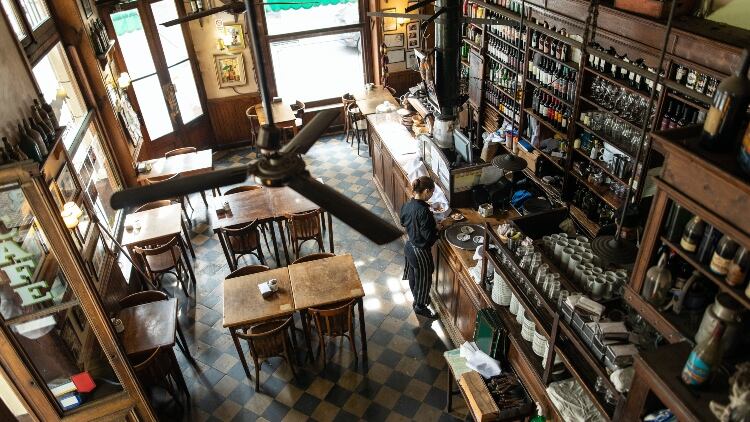
(Image: miodrag ignjatovic/Getty Images)
The murder of Sarah Everard following her disappearance on 3 March sparked a national conversation around women’s safety and prompted a number of pub companies and stakeholders in the late-night economy to reassess what steps they’re taking to safeguard female staff members.
Speaking to The Morning Advertiser as part of its International Women’s Day coverage, Ema Harker, general manager of the Star in Belgravia, London, stated that “even something simple like deciding how to get home safely after a late finish could pose a particular challenge to women,” when discussing what she perceives to be the biggest barriers facing women in the on-trade.
Here Mark Kusionowicz, CMO of lone worker app StaySafe examines the risks of lone working and what role apps can play in keeping staff safe.
Working alongside the public without colleagues is often risky
There are many jobs that carry risks to staff, but if an employee cannot be seen or heard by a colleague, even for a short period, the risks are amplified.
This should be of concern to employers who have a legal and moral duty of care for their employees. Lone working, as it is known, does not necessarily mean the staff member is isolated - working alongside the public without colleagues is often risky.
Pubs are frequent employers of ‘lone workers’ in many forms - during periods of the day they may just have a single bar person on shift, closing up late at night is often a solitary task, and pubs with rooms may well have someone working overnight to support guests.
Even a trip down to the cellar during a busy shift could mean an employee is out of sight for a period of time.
The risks of lone working
The risks of lone working can be summarised as:
People risk: Unfortunately, lone workers are more at risk of violence and aggression from members of the public and are often regarded as easier targets. Alcohol and perhaps stress are likely to exacerbate the risk, as is working with potentially significant sums of money.
Environmental risk: Lone workers could be at risk to common workplace hazards such as falls, faulty machinery and electrocution. Working alone poses challenges in regard to receiving immediate assistance and medical help if an accident does occur.
Ill health: Similarly, if a lone worker suffers from a medical emergency such as a heart attack or fainting, receiving immediate support and alerting emergency services could prove difficult without nearby colleagues, particularly if working out of sight and sound.
Modern lone worker apps, enable workers to raise alerts when an emergency occurs so that employers or the emergency services can respond quickly. They run on a standard Apple or Android smartphone with no need for additional devices that would often be left on the side or just not charged up.
Discrete alerting is provided for, so that a potentially violent confrontation is not caused by an obvious action.
Timed sessions, or regular check-ins, on the app mean that a monitoring person, either third party responder or in-house team leader, is alerted when the employee has not communicated that they are OK. A fall can even trigger a “man down” alert.
The cost of security can be measured in multiple ways, but getting it wrong can be costly for your business
When it comes to pub security, operators must consider more than their bricks-and-mortar assets and think about the long-term of the business.

Yes, preventing disruptive and costly issues such as burglaries and vandalism is one part of security, but there are other layers that must be considered to ensure an operation’s successful future.
As already stated, there are layers of security when it comes to keeping premises safe; think about your license and reputation as well as the building, the stock within it and your staff and customers.
Before we get into the nitty-gritty, let’s consider reputation and how to ensure security in that sense. Who runs your social media channels, who has access and is there any guidance, checks and balances in place to prevent damaging tweets and posts from being published under your pub’s name?
Social media
Social media has proven itself to be of significant value to businesses due to the fact it is in essence free marketing. However, one wrong post could land you and your business in hot water and risks landing your brand in jeopardy.
But this can be easily prevented and for free, aside from a little time on your part. Here are some things to consider:
- Set up templates for social posts and consider the tone, frequency and content of what can and cannot be posted on your social channels
- Don’t give every member of staff access to the pub’s account, but keep it to yourself or charge another, trusted, member of staff to run it
- Make sure that nothing is posted without your prior permission, but if you are the person in charge of posting then run the words and images by a few people to ensure it makes sense and doesn’t strike the wrong chord
- Set out a content plan that encompasses all of your pub’s events and clearly state which activities will be shared and outline how they will be shared – i.e. an image and a few words
- Will you be posting about new dishes and drinks available at the pub? If so, plan which you will be sharing and outline how this should look
- If you do have a marketing budget, then consider contracting a social media expert to run your pub’s channels. There are many great agencies and experts offering these services, but remember you can also do it yourself for nothing
CCTV
Probably the thing you think of first when it comes to security, and often a requirement of many pub licenses. It can be as simple as dotting a few cameras around in areas you feel are most at risk, but delve a little deeper and you could find other parts of the business that need another watching eye.
Done right, security cameras can do more than protect the outside and inside of a building, they can potentially safe you money and a significant amount of hassle should the police come knocking for information relating to an incident.
National Pubwatch, the voluntary organisation that supports existing Pubwatch schemes and encourages the creation of new ones, says that while the same issues of refusing entry, refusal to sell, drink spiking and domestic violence continue to crop up, there has been an improvement in dealing with them. Getting pubs to work together to identify the main problems, better communication and working with the police and enforcement agencies to resolve issues have all gained traction, says National Pubwatch chairman Steve Baker in a previous Morning Advertiser interview.
The rise of CCTV and social media has played a crucial role. There are several million CCTV surveillance cameras in use in the UK today. Richard Smith, licensee of the Roundabout in Plymouth, Devon, and a regional rep for National Pubwatch, says: “In Plymouth, we communicate with all our sites on a daily basis via Facebook. If we hear of a break-in then we can share CCTV, we can share information and we can try to obtain a description or a name.”
Drugs are a serious problem that could lead to other criminal activity including extortion and violence. Ultimately, it could result in closure of an outlet. High standards of cleanliness and service, and keeping a high profile at the pub by being there regularly, knowing customers, making your presence felt and staying alert, are powerful deterrents to the drugs trade, a guide produced by the British Beer & Pub Association (BBPA) says.
Called Drugs and Pubs: A Guide for Licensees, it says a ‘don’t care’ management attitude, and premises with uncollected glasses and sloppy service, are as good as a written invitation to those involved in the drugs trade.
The guide, available on the BBPA website, lists dozens of tell-tale signs of drug use, customer behaviour patterns and ways staff can monitor their premises. It advises licensees to take control by working with the police and joining local Pubwatch schemes and by keeping company management informed of incidents or suspicions.
Doormen can provide an added layer of security, of course, and technology is a key driver here too.
Software already exists to deliver instant ‘blue light’ notifications to venues, which are cascaded down to key members of staff as soon as an incident has been reported.
The licensed door industry was growing fast, but in 2018 it was revealed there had been a 40% drop in the number of Security Industry Authority licenses being issued for the previous six years.
But to deter criminal activity, CCTV is the biggest and most recognised benefit. Outside of being able to monitor your premises, CCTV cameras are a deterrent for burglars.
According to Broadsword Security Services, studies have found that using CCTV in car parks resulted in a 51% decrease in crime; in public transportation areas a 23% decrease in crime; and in public settings, a 7% decrease in crime. Even the lowest figure in these categories – 7% – is a significant improvement.
A camera system provides an increased sense of security, reassurance and peace of mind, particularly in areas where the crime rate is high.
It acts as a comfort blanket and gives you confidence that your property is being watched when it is closed up for the evening or just not in use.
Things to consider are:
- Identify any areas of your premises that may be vulnerable to forced entry and have them made more secure, paying particular attention to windows and doors
- Make sure any service doors are locked and secure when not in use
- Make sure you have a monitored alarm and that it’s fully operational
- Ensure your CCTV works, provides facial recognition as well as good-quality images, and covers any vulnerable areas – 24-hour digital CCTV is also highly recommended
- Wheelie bins, and the like, should be stored away as these can be used to climb on to gain access to the building, especially via the first floor
- Sufficient lighting around the premises can be used to deter criminals and also help to improve CCTV images captured
- Prune any overgrown bushes or nearby trees as they can provide cover for anyone trying to hide from view
- External shutters, although effective, may require planning approval. We would encourage the use of attack-resistant laminated glass in sturdy frames where possible. Alternatively, film can be applied to glass to make it more resilient
- Anti-ram raider bollards mounted externally can be used to protect the front of premises but may require planning approval. Owners of businesses that may be subject to smash-and-grab-style burglaries, due to high-value stock being kept in their windows, should consider looking into this option
- Consider moving high-value goods away from display windows overnight
- Try not to keep cash on the premises and always use a bolted-down safe with a time lock and anti-tamper sensors that trigger an alarm
- Make sure stockrooms are locked and, where possible, keep stock out of sight
- Smoke-generating devices that activate on unauthorised entry create a smokescreen and foil burglary but are designed not to damage stock
- Make sure your keys are not left on the premises and that only designated staff have access. In case of emergency, make sure there’s a list of keyholders who can be contacted
Terrorism
And then there’s the potential issue of terrorism focused on the hospitality sector.
Systems, however, can be put in place to mitigate risk and potential safety issues, such as basic good housekeeping, which cuts opportunities for placing suspect packages and helps deal with false alarms and hoaxes, says the National Counter Terrorism Security Office (NaCTSO), the police unit that helps support the Government’s counter terrorism strategy and which works with the Home Office.
It recommends that licensees search premises inside and out before, during and after opening hours; remain vigilant during opening hours; and ensure emergency exits are secured when not in use.
Evacuation responsibilities and roles must be clearly communicated to staff, routes and exits must be well defined and evacuation plans exercised regularly.
NaCTSO also advises that it may be safer to stay inside a building if the threat is outside, and to consider the possibility of a multiple attack and the need to move people away from other areas of potential danger, which may include glazing.
Gaming
We all like a little fun and that's the same for punters in the pub, but what can you do to bring a little extra to your gaming offer?
Will it be skittles, darts of dominos? Or how about a VR shoot-em-up game, a round of golf or a go on Pacman?

It is safe to say pub games have moved on significantly in recent years, with thanks to the rise of more affordable tech as well as the consumers’ desire to find new and interesting entertainment offerings from the pubs they visit.
However, as the younger generations drink less and look for more experience-led days and nights out, pubs need to consider innovative ways of drawing in consumers and keeping them there.
Venues across the country have started to look at their empty spaces, the latest updates in technology and current trends in the market to help boost their entertainment provision and wow the crowds – moving away from more dated entertainment that people often associate with the local boozer.
These days nothing is out of reach, from crazy golf, cinemas and virtual reality to theatre and escape rooms.
In some pubs, a weekly pub quiz and a DJ at the weekend is all that’s needed for regulars to have a good time.
However, this wasn’t enough for the Laine's Pub Company (LPC), a business that has taken entertainment in its London pubs to the highest of levels.
The Four Thieves in Battersea is full of vintage arcade games, crazy golf, pinball, mini-motor racing and is the first pub in England to feature virtual reality gaming. The Aeronaut, in Acton, has a circus inside, and the People’s Park Tavern in Hackney, has a “twisted escape room” – to name just a few attractions in its London portfolio.
The company upped the ante in transforming its entertainment offer several years ago, and started to think about all the other reasons people might want to go down their local.
But then there is also realm of esports which at an event, organised by The Morning Advertiser a few years ago, operators learnt the potential business practicalities of the category.
Head of esports and gaming at Goat agency and CEO of Edge esports, Adam Whyte – looked at how pubs can embrace gaming and e-sports and tap into the Millennial market.
At the time, Whyte highlighted that not only are esports events attracting live audiences of 90,000, the level of audience interaction is unprecedented for crowds of that scale. “You haven’t seen audience interaction like this.”
Attracting around 400m viewers a year, esports is the fastest growing consumer industry in the world.
Whtye set out that the scale of grassroots gaming was enormous. It was estimated that 2.3bn people were gamers, ranging from friends playing on their couch, venturing into the world of online gaming and then competitive esports events.
The best gamers in the world were gaining traction akin to the biggest stars in sport with Whyte giving the example of Reckless, who he called the “Lebron James of esports”, winning hordes of fans and sponsorship.
Esports, Whyte explained, was a very age-specific phenomenon. If you’re running a “spit and sawdust” style pub attracting older footfall, it would not be a sound fit.
Esports videos such as ‘shoutcasting’ – commentating on esport videos – were regular chart toppers on Youtube.
What’s more a video featuring rap artist Drake gaming with esport star Ninja, attracted 15m viewers – 600,000 at its peak viewing time. Such figures dwarf Premier League audiences.
Whyte also highlighted that videos of people playing the digital game Fortnite Battle Royale, were among Ladbible’s top five daily videos – showing sustained demand for watching a game that Whyte described as “digital hunger games”.
It’s not just endemic gaming brands that are cashing in on, and sponsoring, esports events. Whyte highlighted Gillette and Bud Light have been involved in sponsoring huge scale esport events.
What’s more, with revenue from esports increasing roughly 40% year on year at the time, it’s an industry awash with cash.
Given the lack of a destination site, Whyte explained that there’s a huge opportunity to engage with gamers currently with no option besides sitting at home watching broadcasts on their own, looking for someone to share and discuss it with. If a pub can provide a place for them to get together, they could be on to a winner.
However, he warned authenticity was key in engaging a gaming audience. Anyone looking to work with the industry needs to learn the lingo and speak to gamers in their own language.
Yet Whyte explained that with the right audience in a venue, sampling esports could be as cost-free as loading up a Twitch broadcast and streaming.
Whyte pointed out that combining a social viewing experience, big screens and broadcast facilities, with the ready availability of alcohol means that pubs have a huge opportunity to capitalise on esports’ growing popularity.
Moreover, he felt that pubs were well placed to cash in on offering promotions to reflect trends and unfolding action – “free pints for headshots” for example.
Wi-Fi
It's not usually the most exciting topic, but Wi-Fi offers many perks for businesses
It’s not something we give much though to these days, and blindly take its existence for granted. But the internet and Wi-Fi have quickly become something Brits and businesses can’t live without.

To put this into perspective, recent ONS data shows 87% of all UK adults used the internet almost every day in 2019. Perhaps that’s no surprise, but the fact that over half (54%) of adults aged 65 or over shopped online in 2019 is.
In 2019, household internet access rose from a total of 90% in the previous year to 93%, and that percentage has risen steadily year on year since 1998 and by a staggering 23% within the decade.
Within a three-month reporting period, the ONS data shows that 61% of adults aged over 65 use the internet daily and 10% weekly. Why are we telling you this? It’s because this segment of the population, should you attract them to your pub, can make up a core part of a customer base during the quieter parts of the week due to their usually higher disposable incomes and the fact they are usually retired.
Those aged 55 to 64, showed similar results with the majority (83%) of the age group using the internet daily.
And of course, the further down the age line you go, the more frequent daily internet use becomes, starting at 93% of 45 to 54-year-olds, 98% of 35 to 44-year-olds, 99% of 25 to 34-year-olds and a whopping 100% of 16 to 24-year-olds, although perhaps not unsurprisingly.
And here’s where things get a little juicier, as 83% of adults polled by ONS said they had used the internet ‘on the go’ via a mobile phone, smartphone, laptop, tablet or another handheld device. And this is where we begin looking at how Wi-Fi and pubs connect.
In 2019, among all adults polled by ONS, 82% bought goods and services online over a 12 months period, a 5% increase on the previous year.
Of those buying goods and services online, 44% spent between £100 and £499 in a three-month period, while 9% spent less than £50.
The data shows that consumers are capable of making purchases online, not only for goods such as clothing, but also services akin to the likes offered by the hospitality sector – be it inhouse or booking and paying prior to arrival.
As a result of the coronavirus pandemic, online activity in pubs has increased as consumers have been urged by outlets to download or use online ordering and payment apps and software. This means that inline with the above statistics, usage of apps and software in pubs is now in the consumers’ repertoire and something they’re more willing to entertain in the future. Hence the need now more than ever for a strong Wi-Fi offering.
But it’s not just about the functions of a business, although a decent Wi-Fi setup can indeed have a positive impact on consumers using a business’ offering. No, some research suggests consumers will actively avoid venues that don’t have seamless internet connections, which is often mentioned on review websites.
Also, if you want customers to share their positive experiences on social media, then provide them with the basic tools to do so in your pub – how much nicer is it to be able to post an image of a beautiful drink on Instagram using a pub’s Wi-Fi rather than rattling through your own data?
There are keener business benefits to having a good Wi-Fi offering too, such as marketing. Implementing a data wall for consumers to fill out before logging into your Wi-Fi gives you data to use for marketing, so long as the relevant GDPR systems and checks are in place.
And finally, it’s the 21st Century, people expect to be able to connect to a strong internet network wherever they are, so there isn’t really an argument against Wi-Fi anymore.
